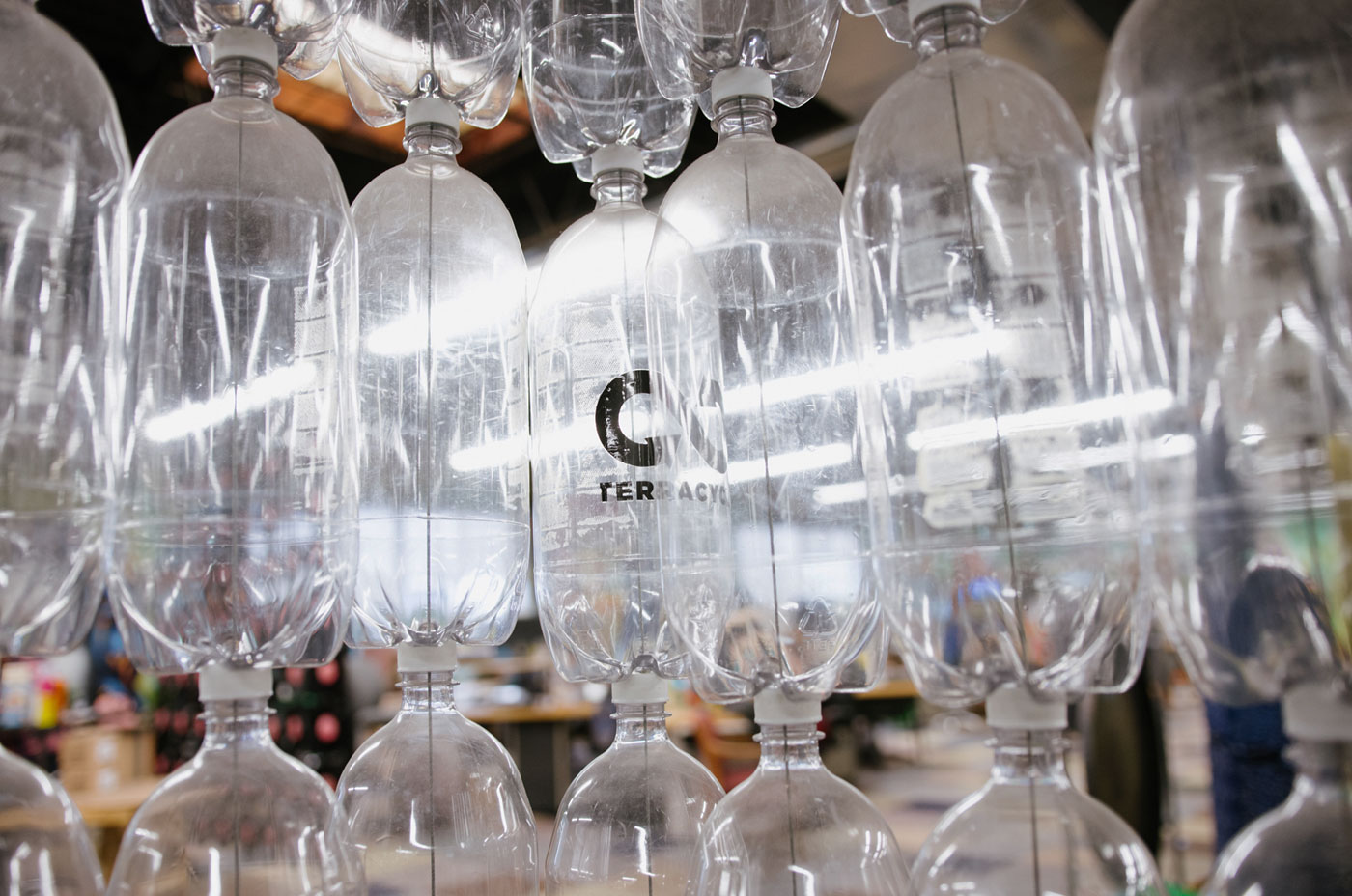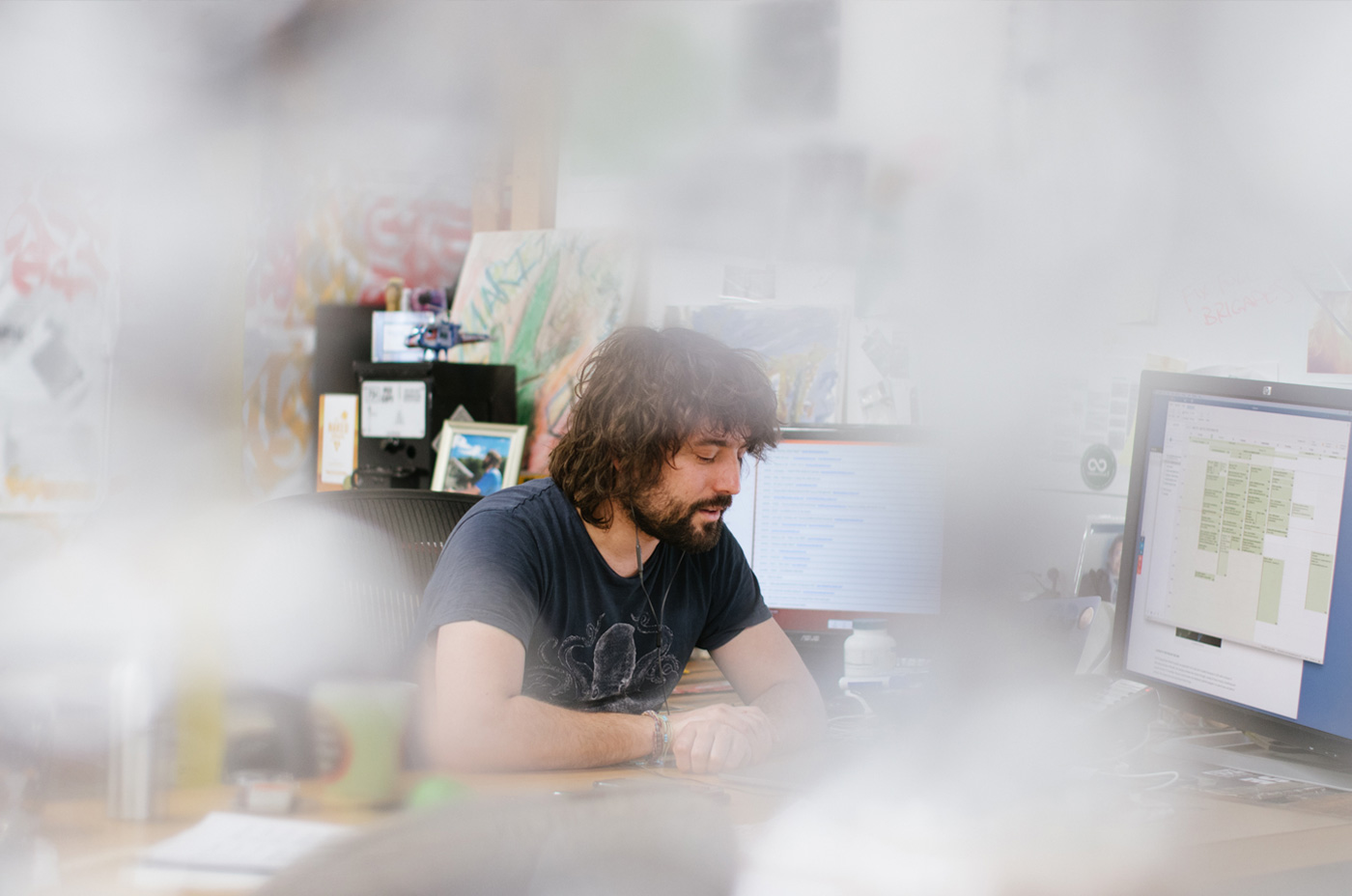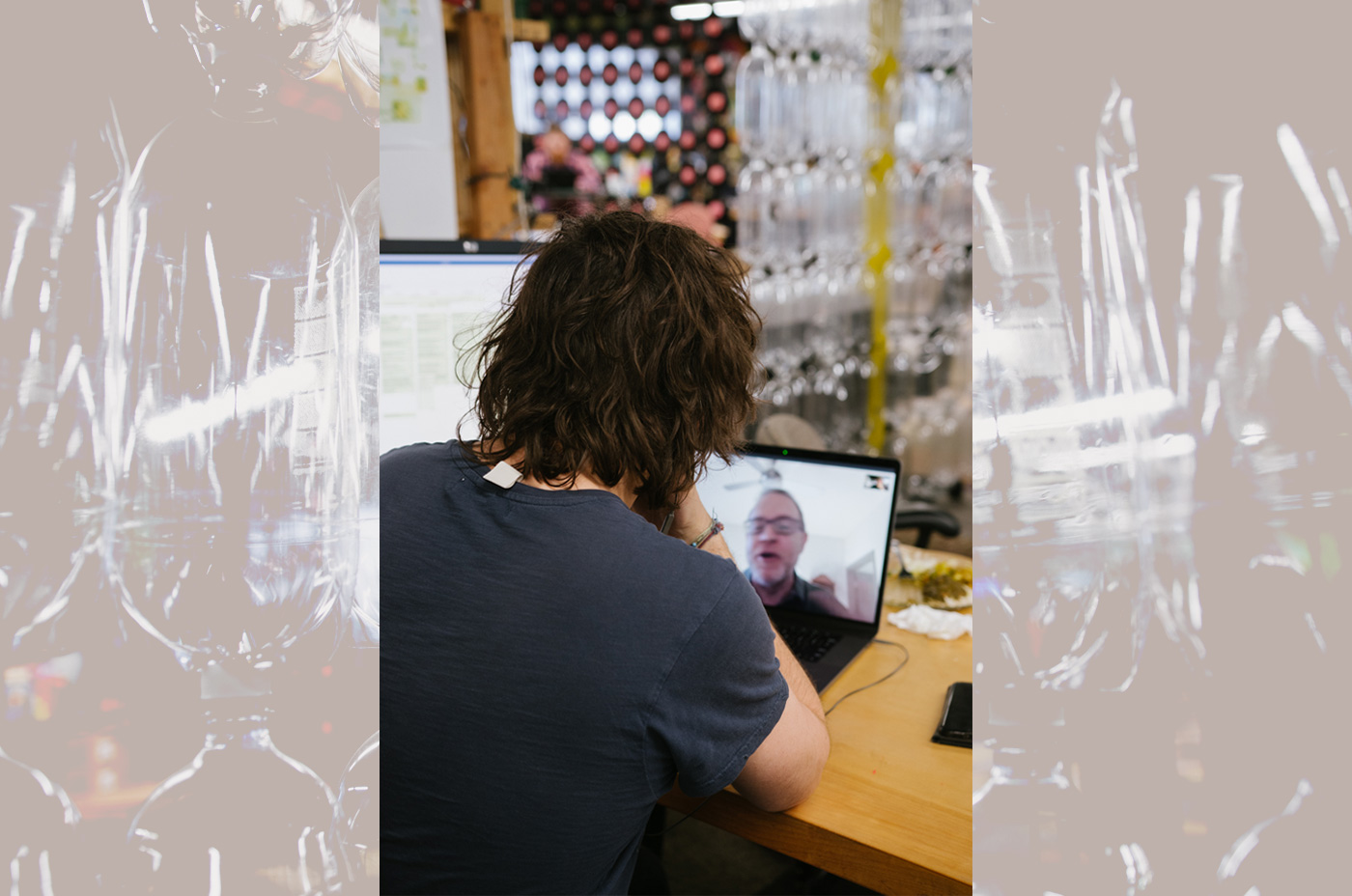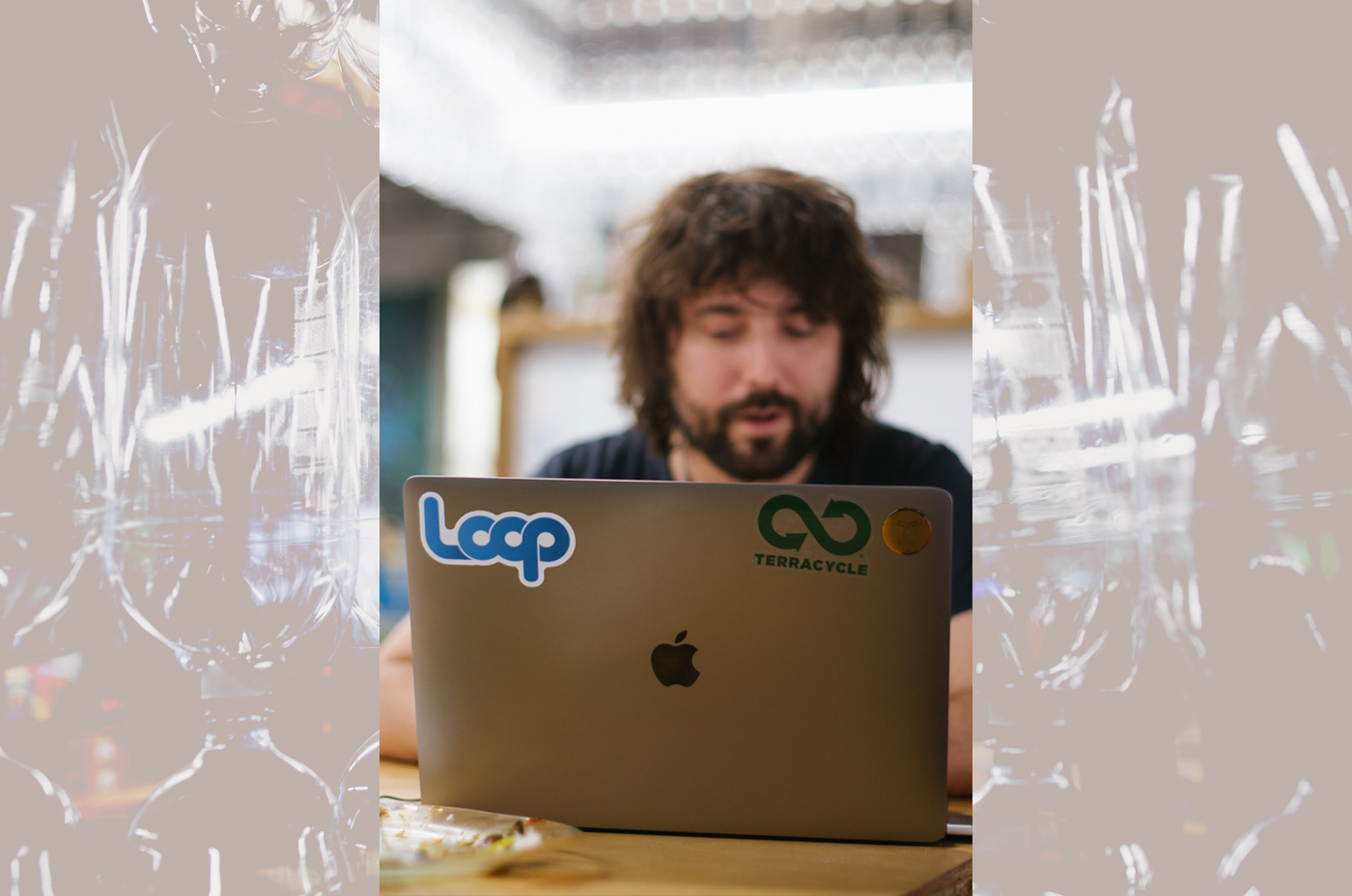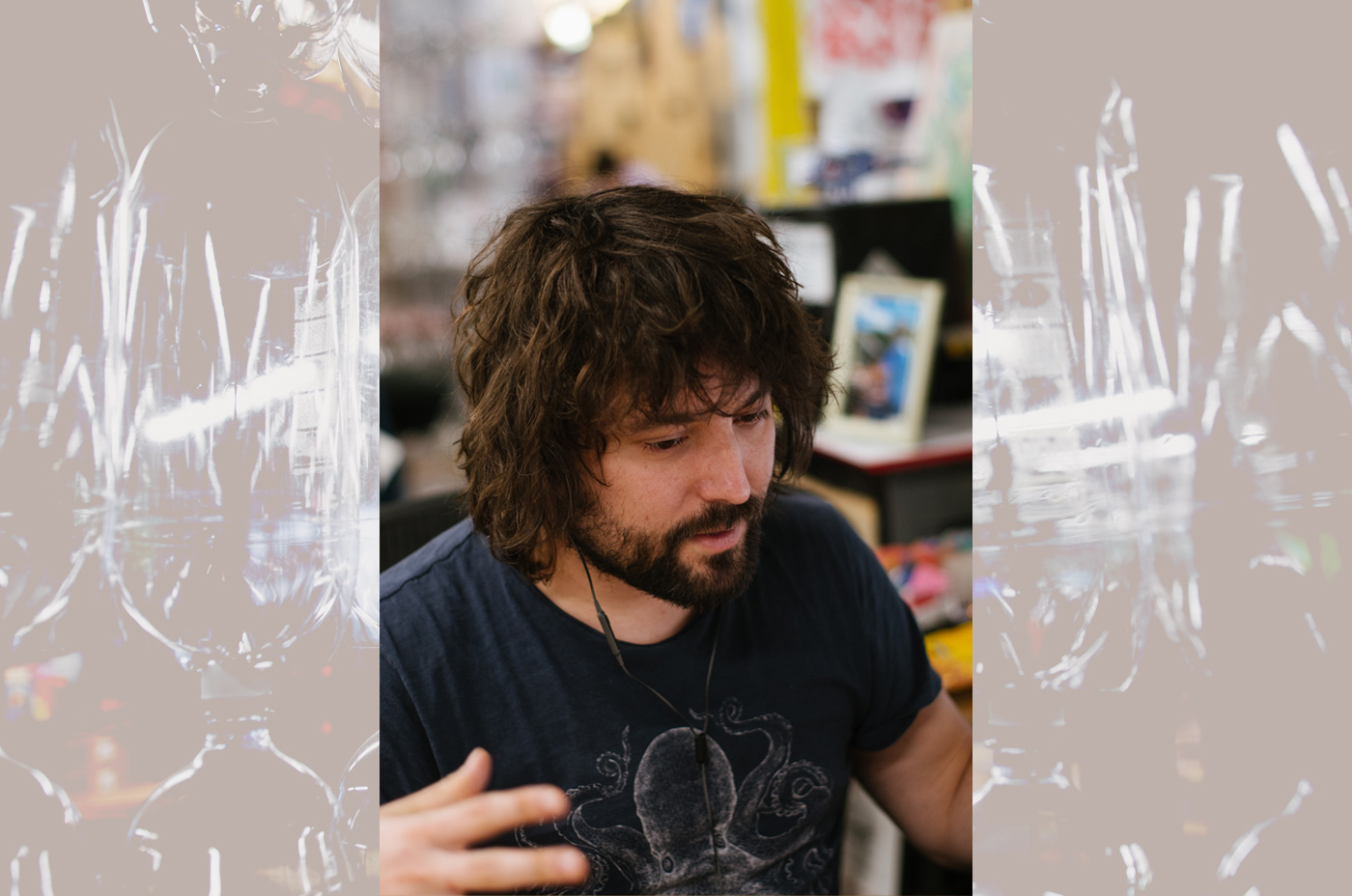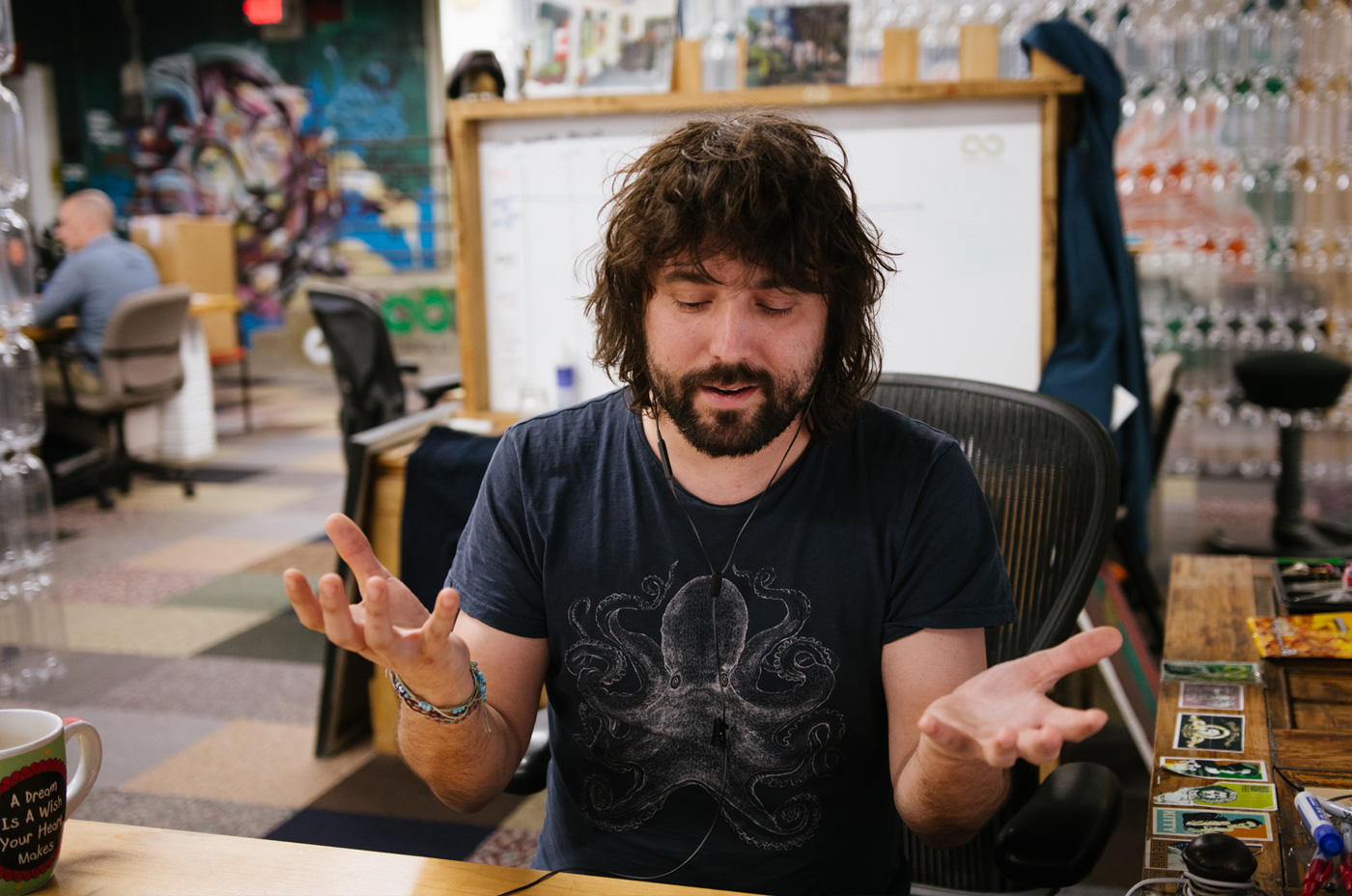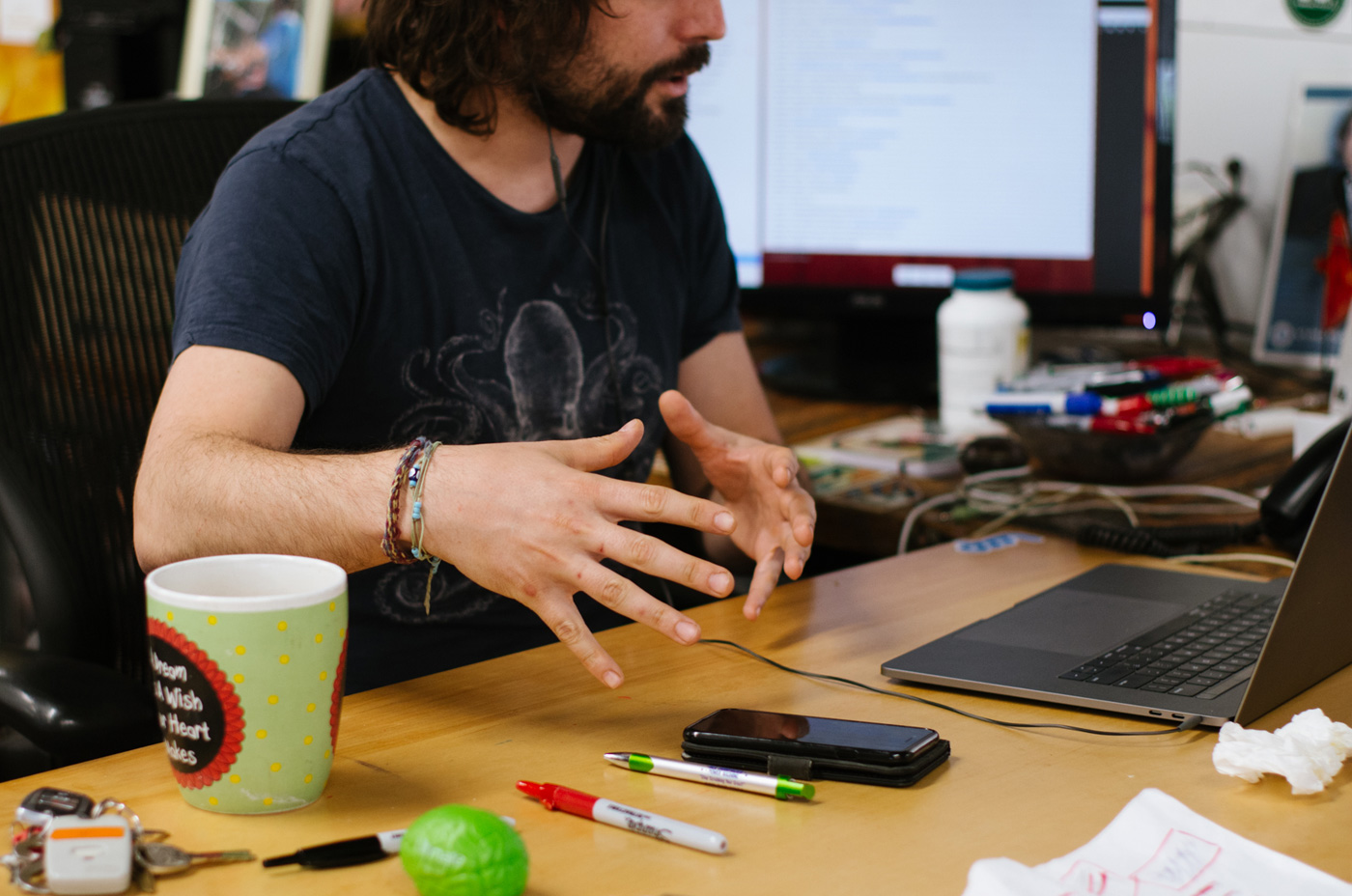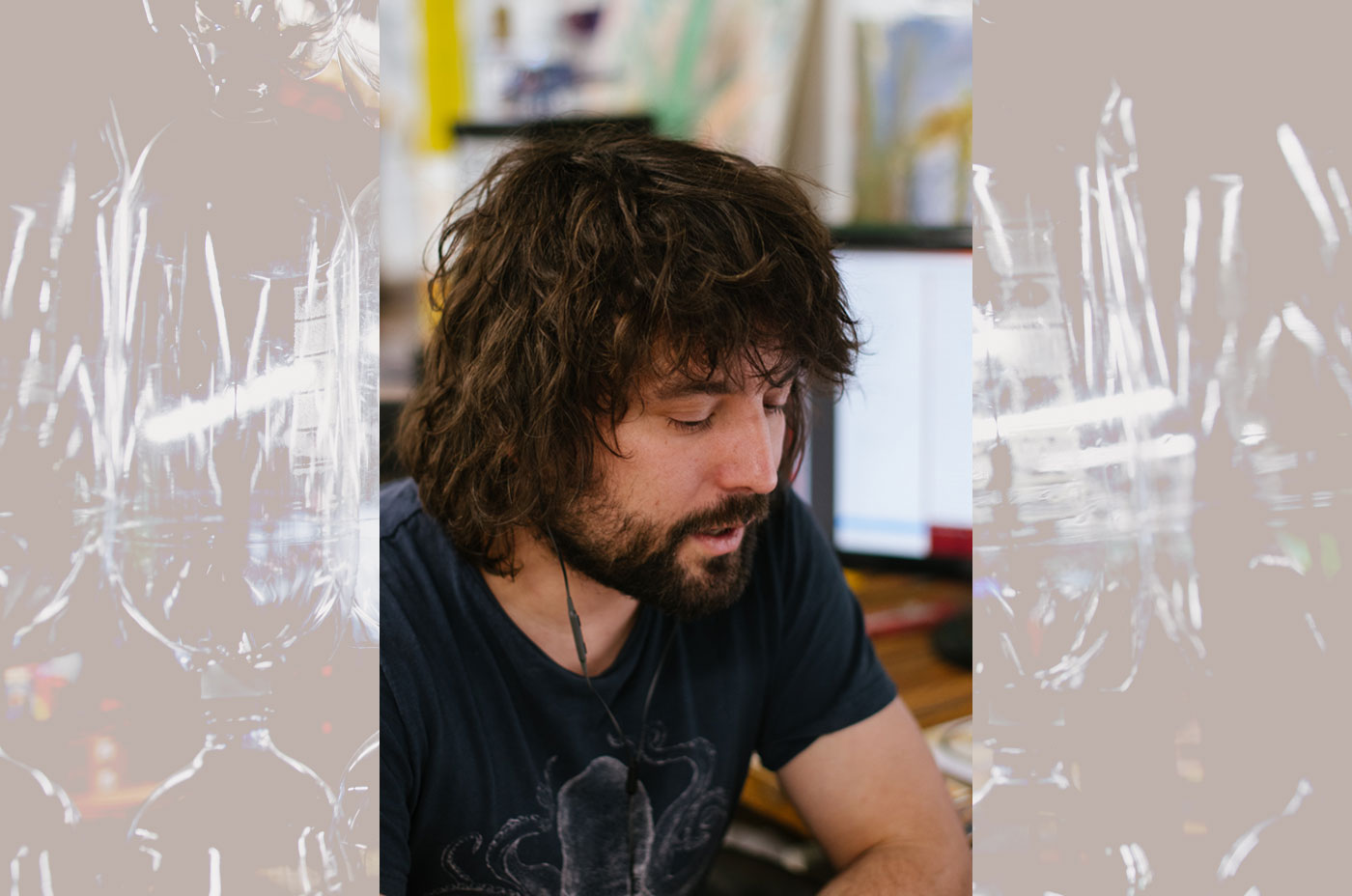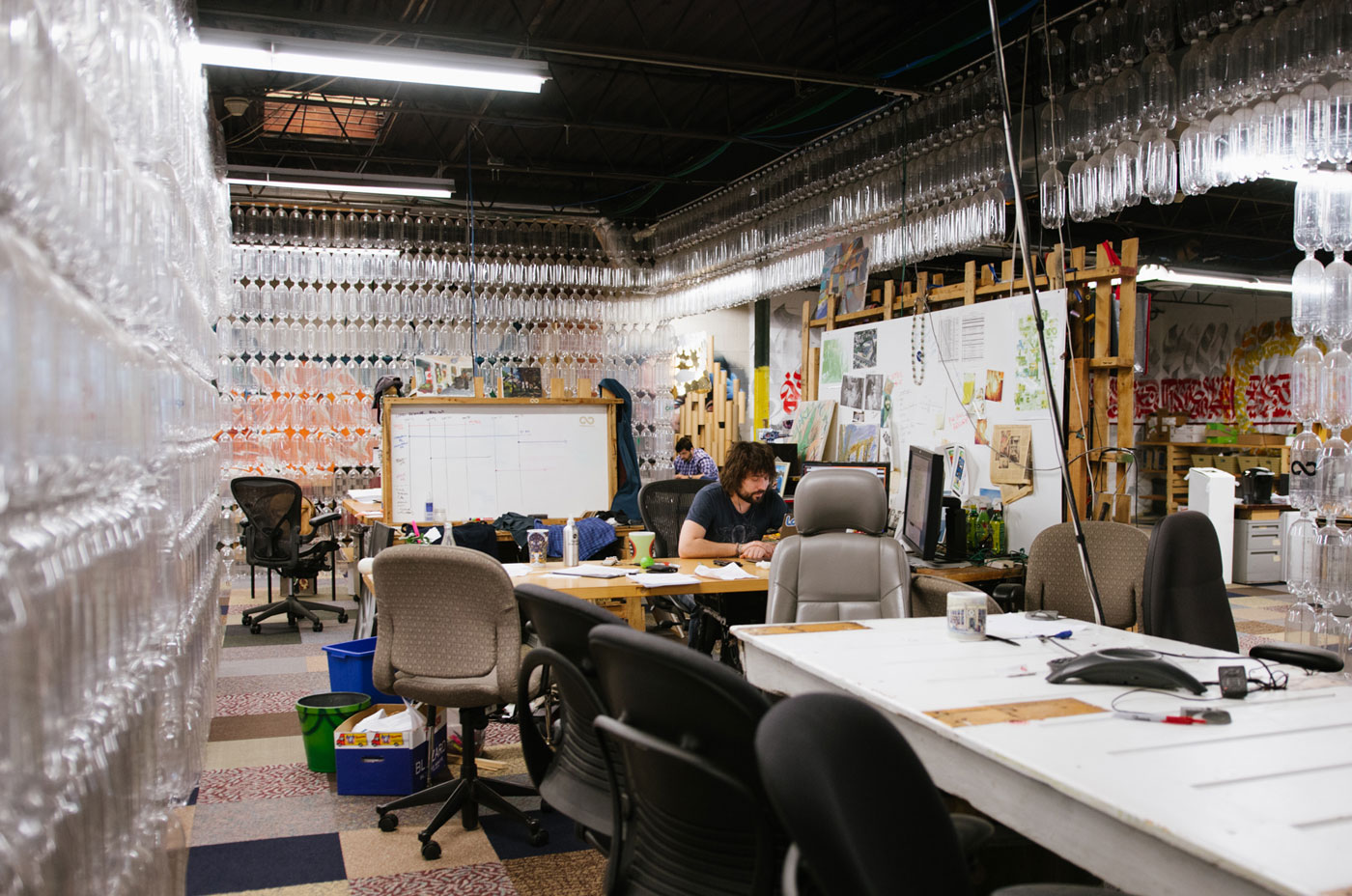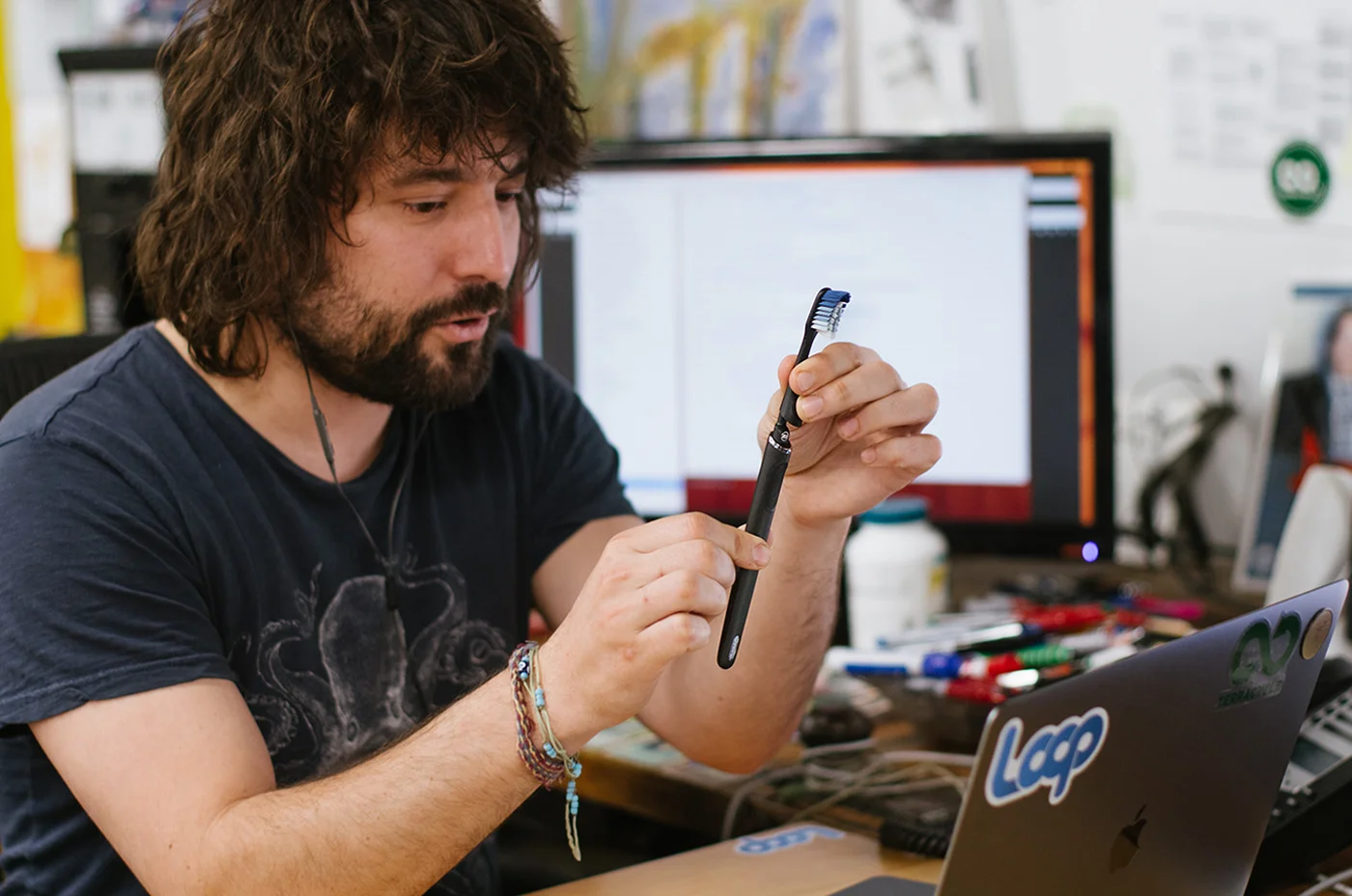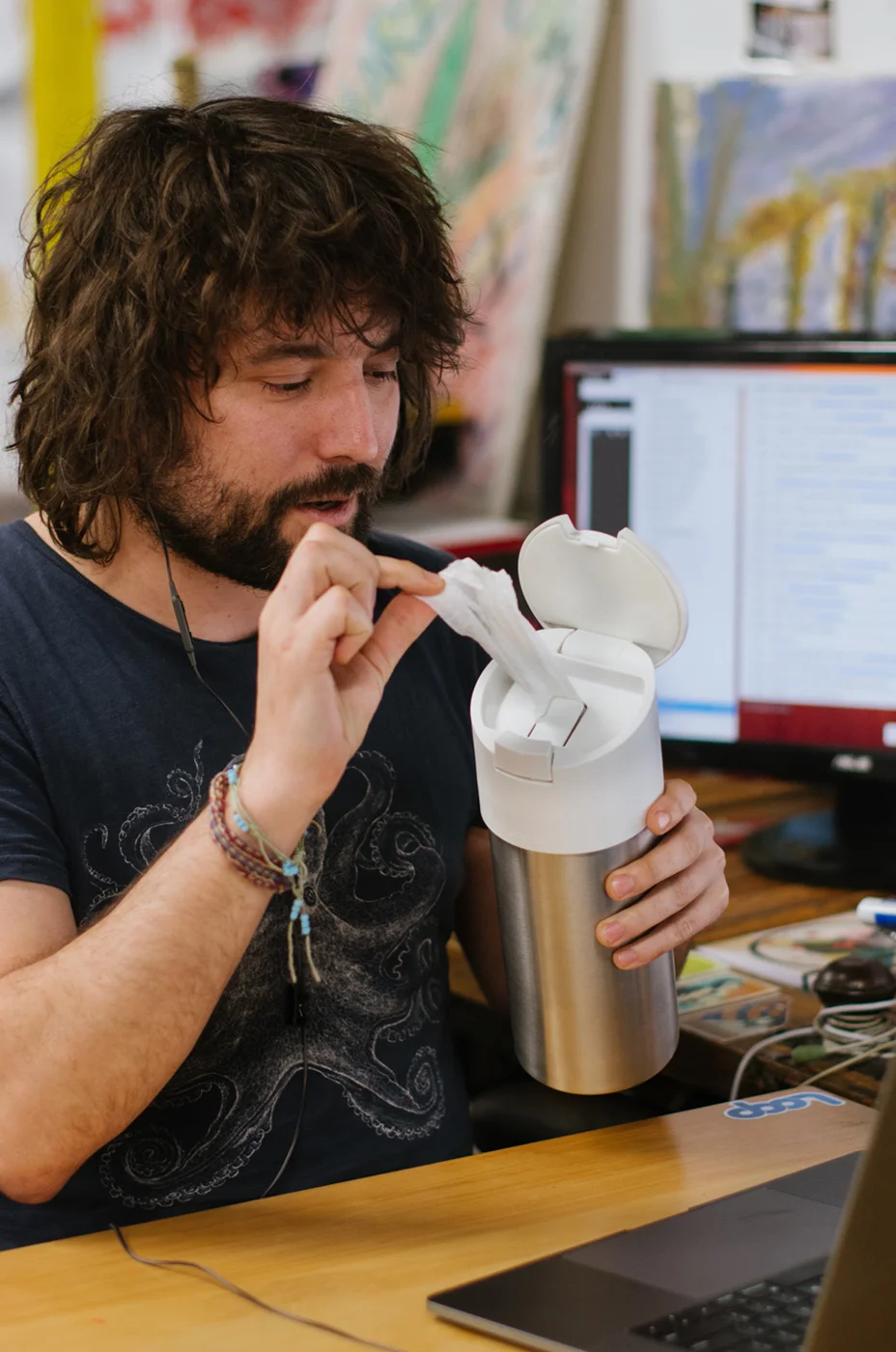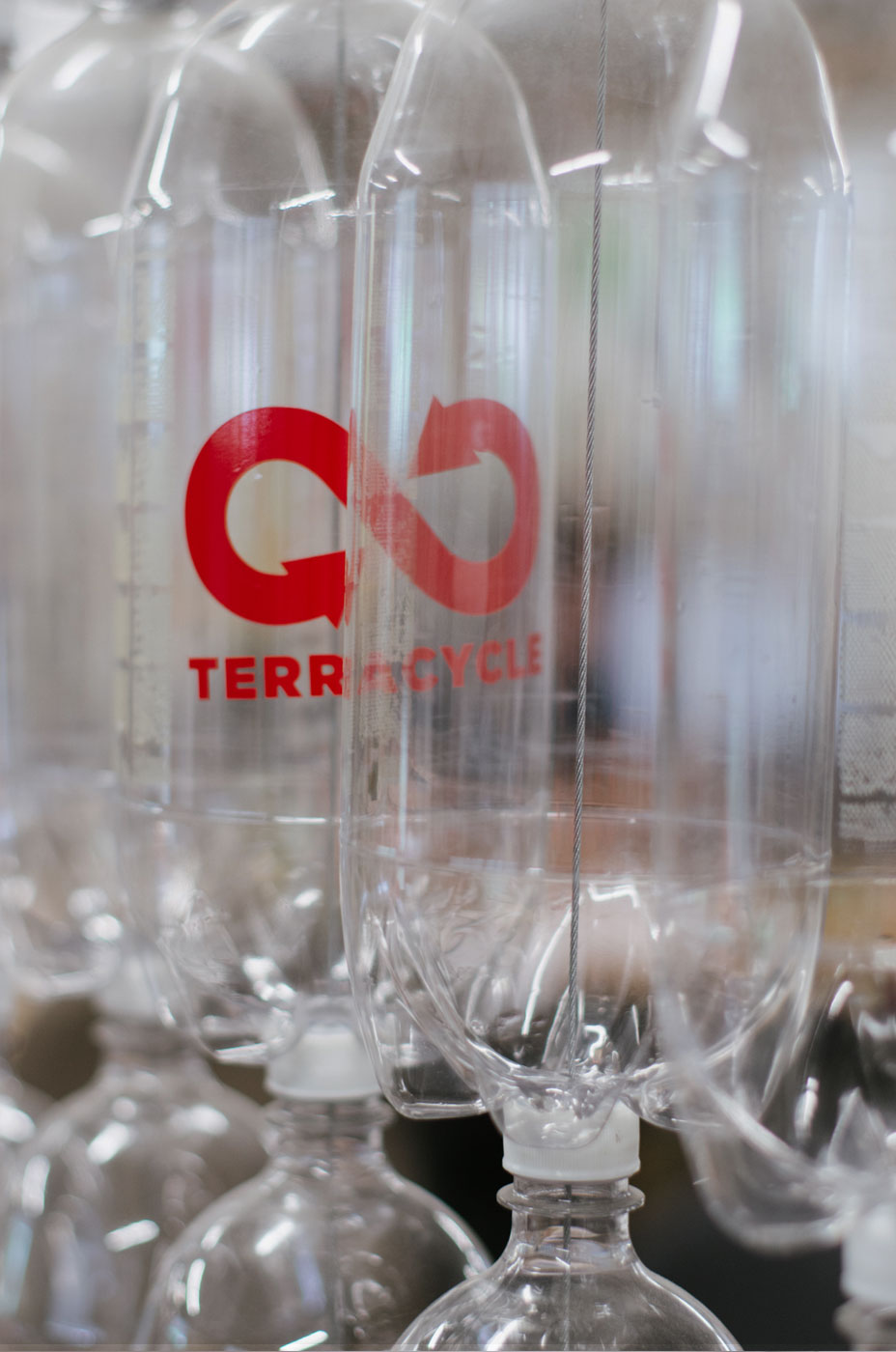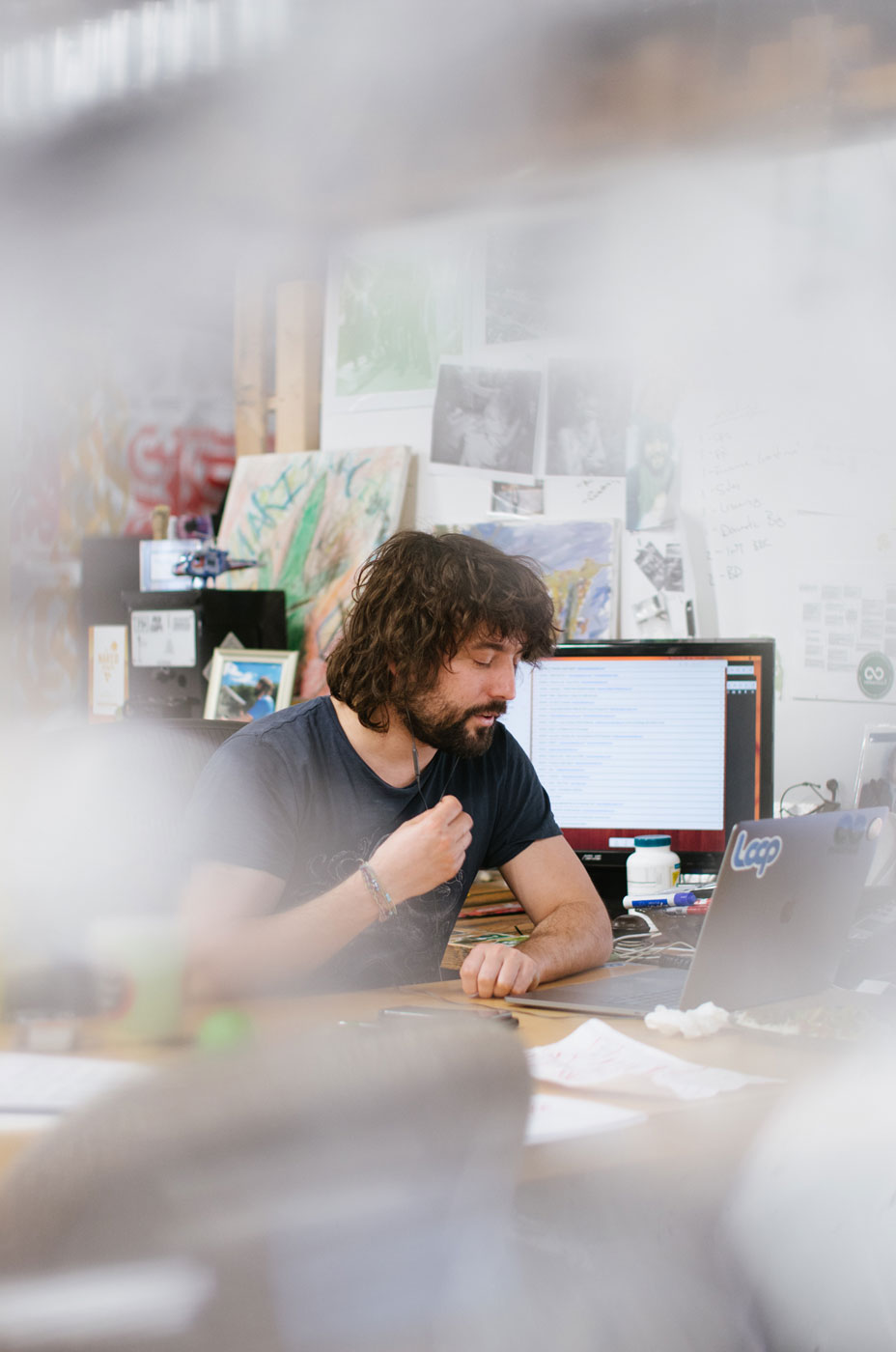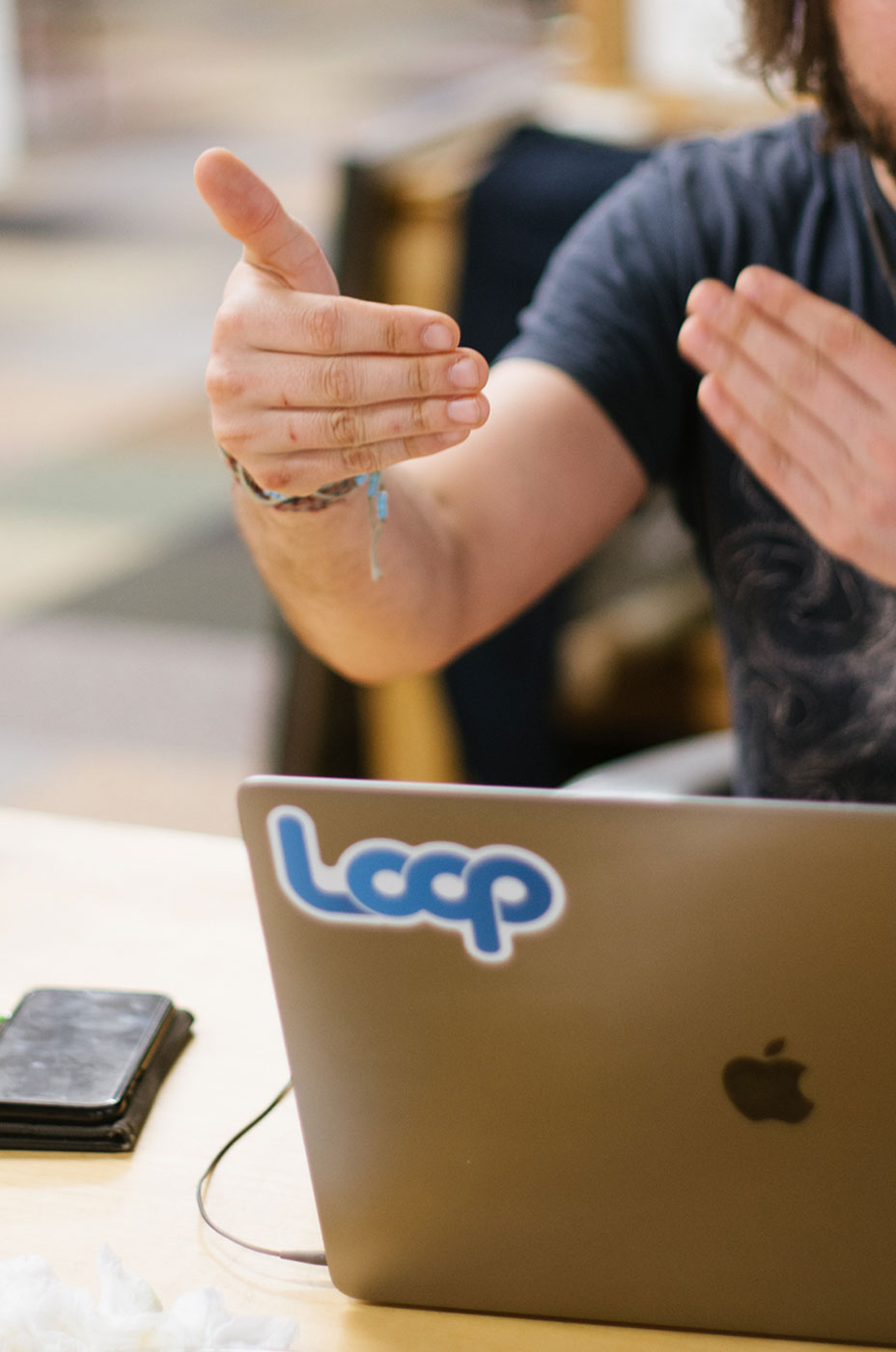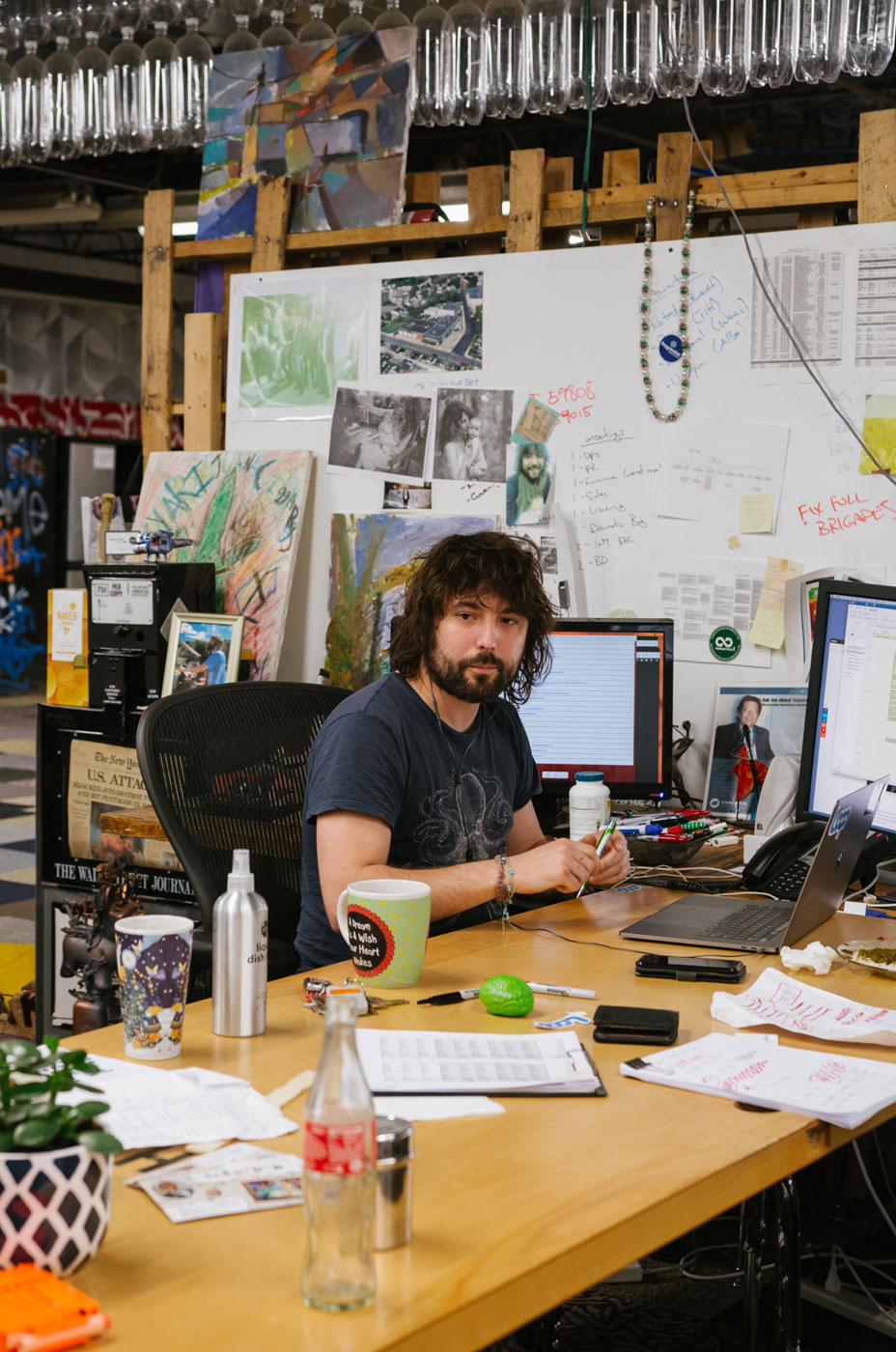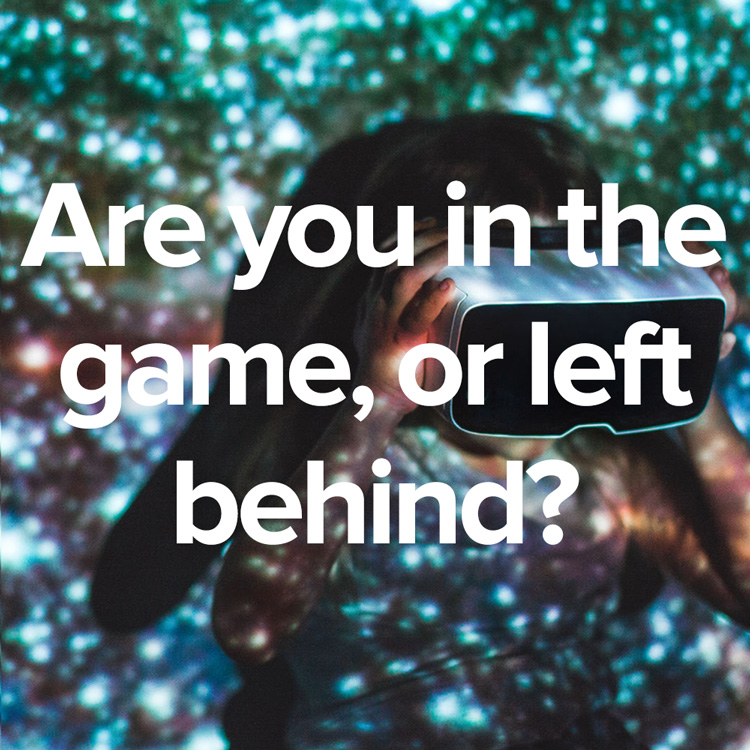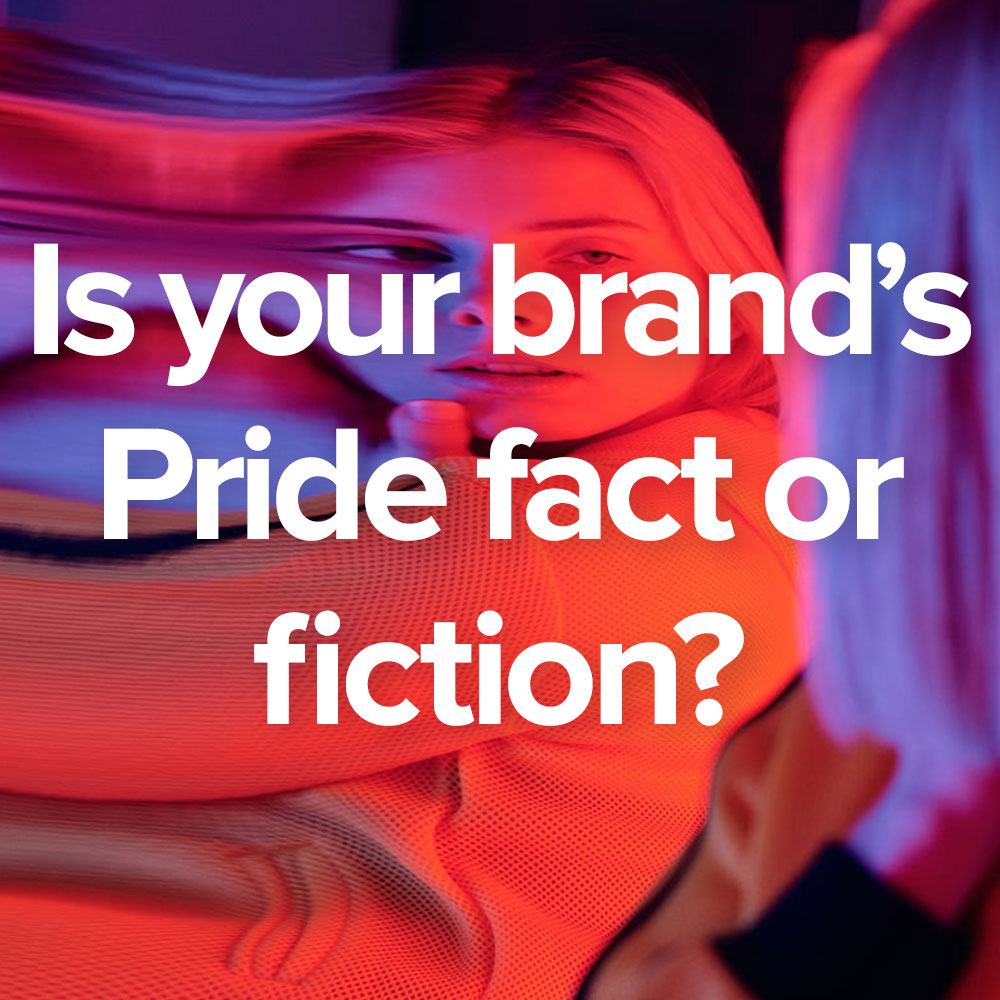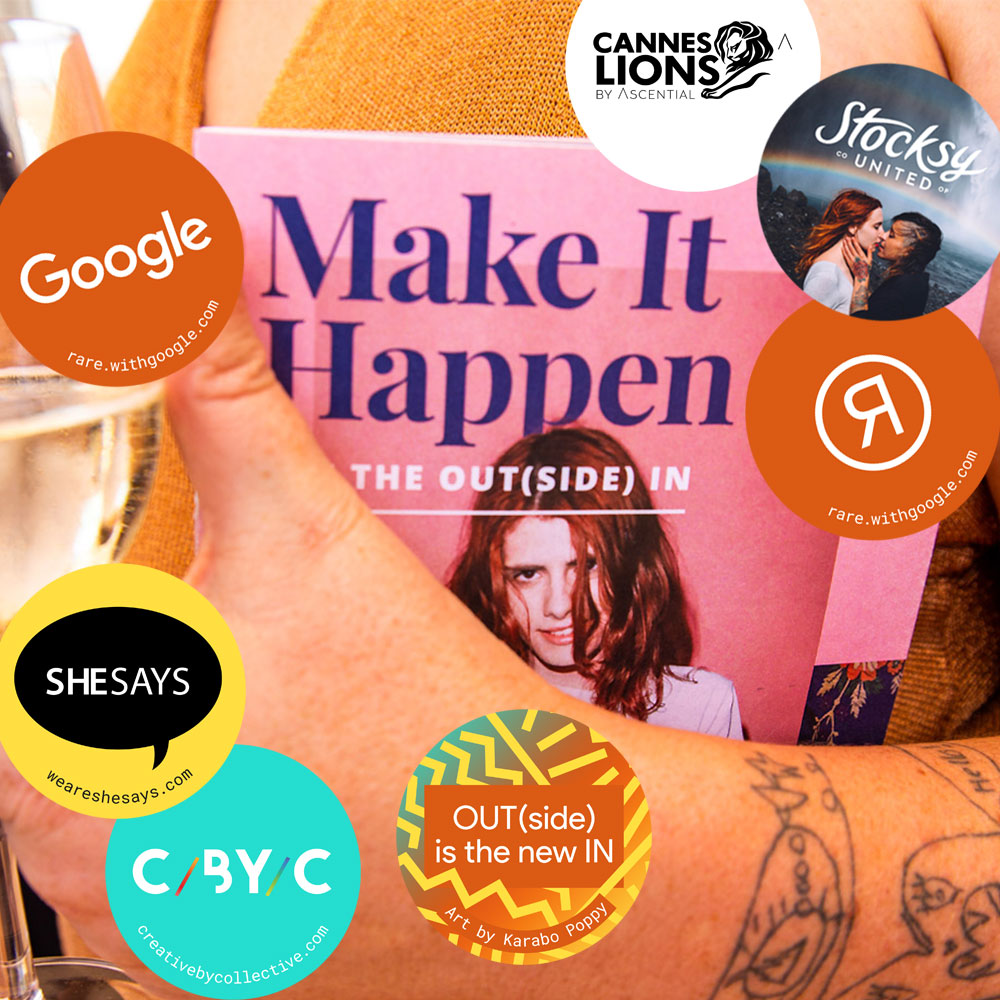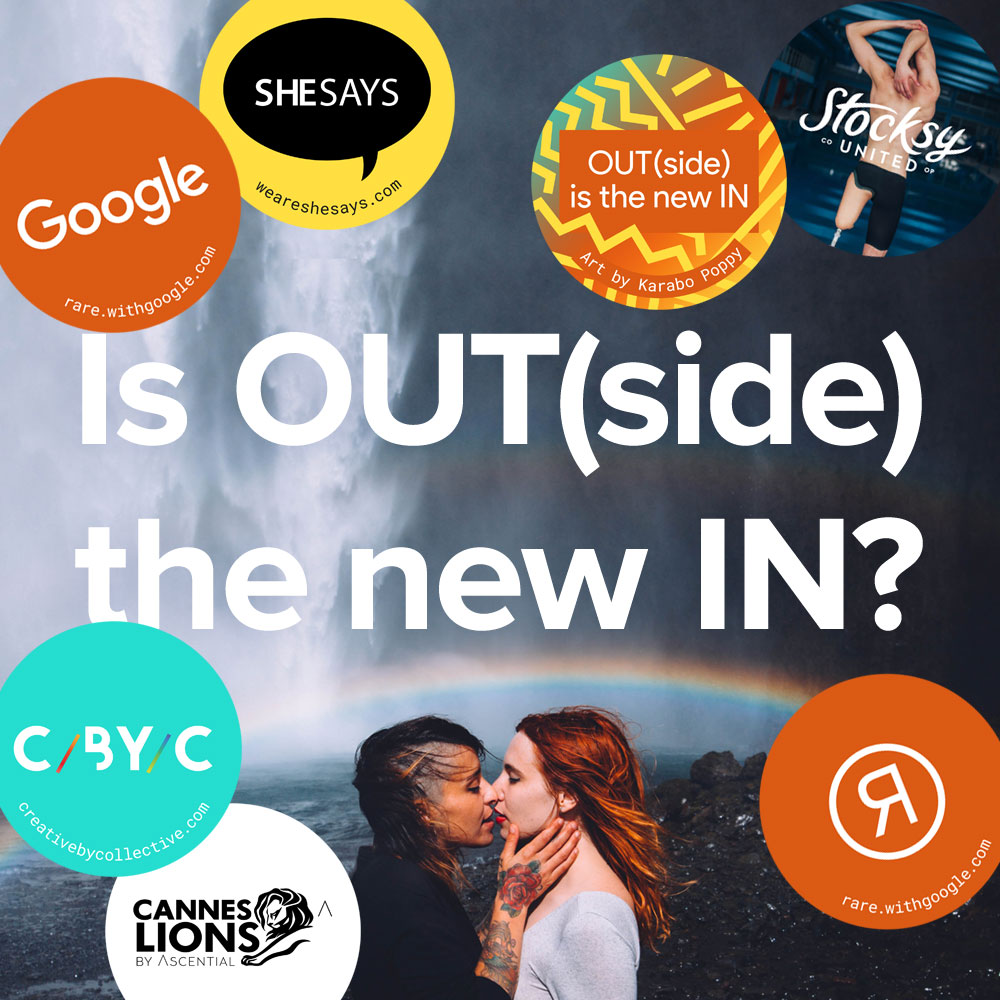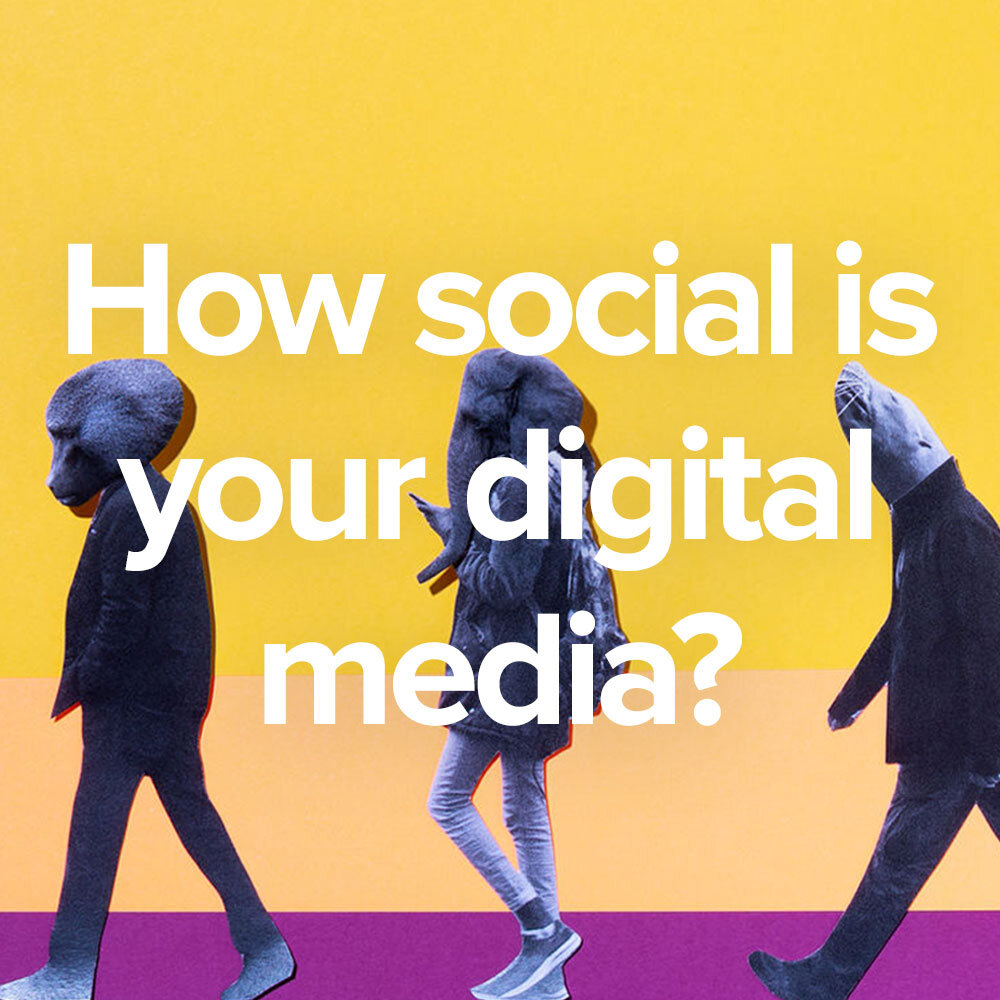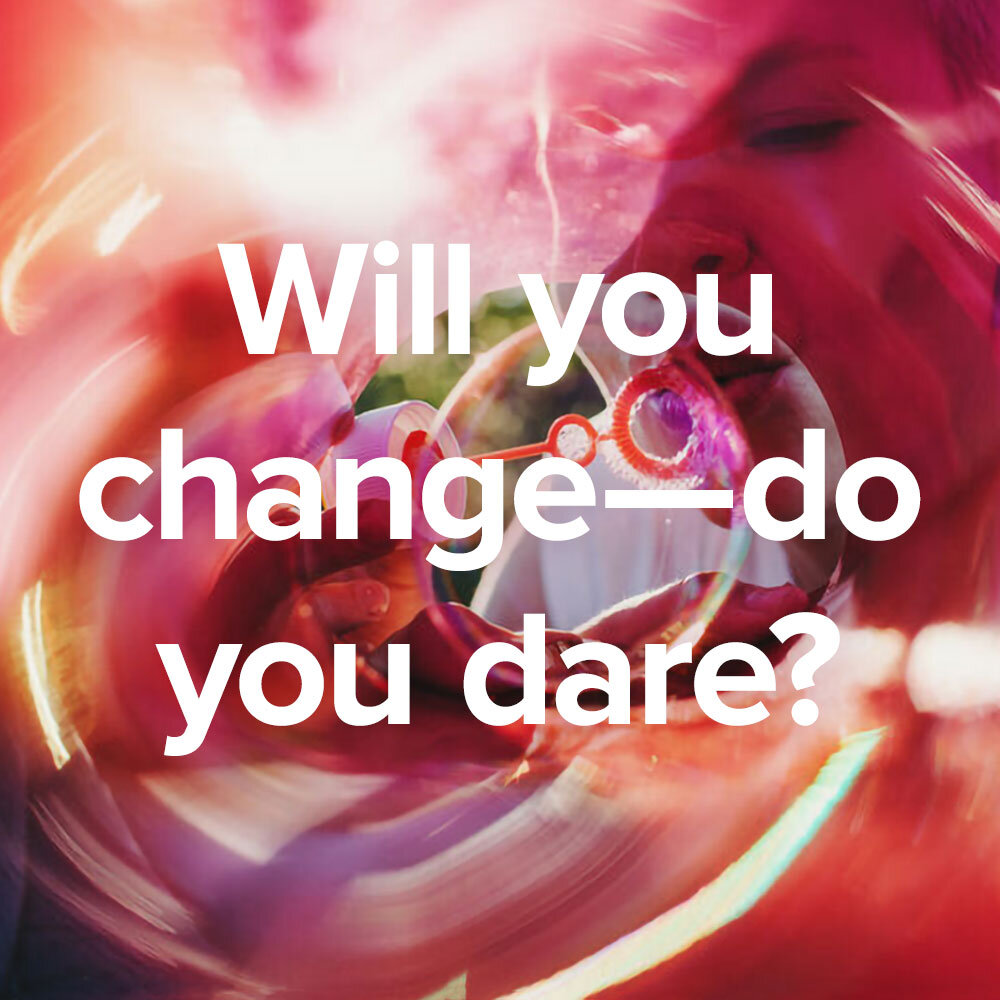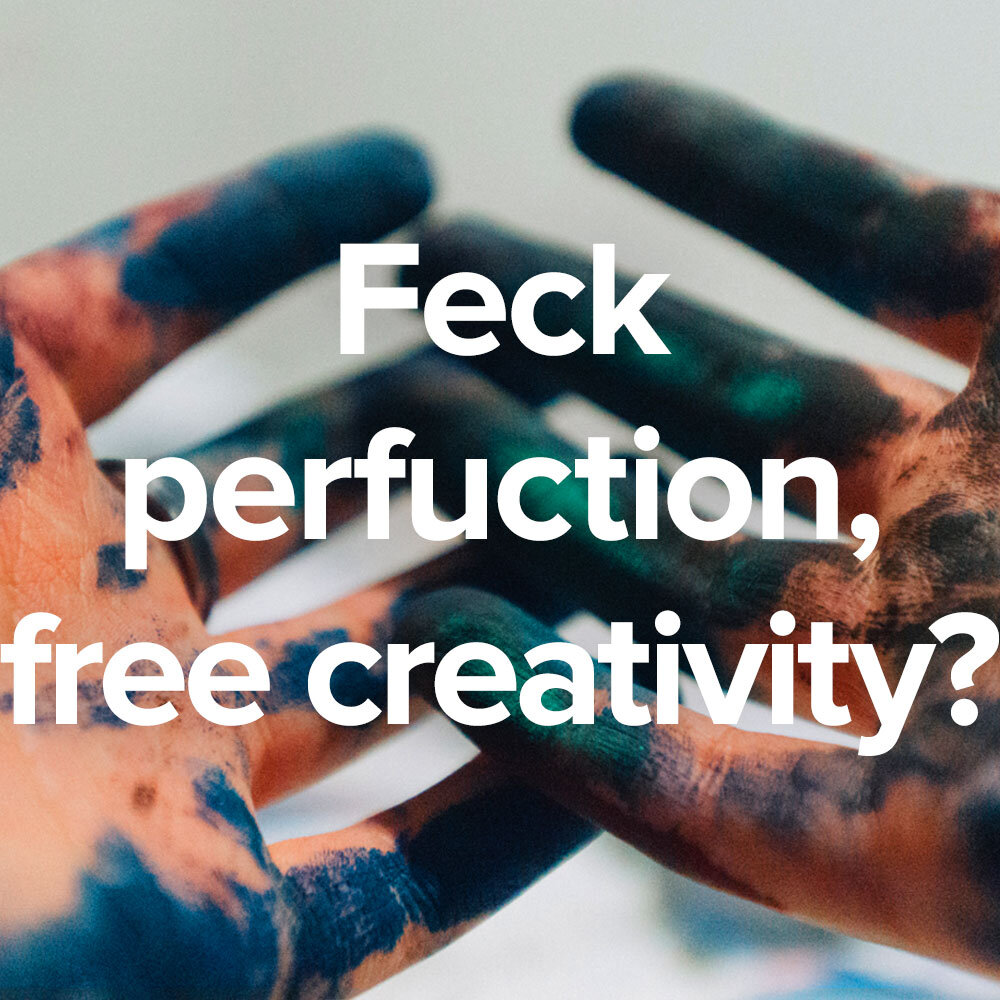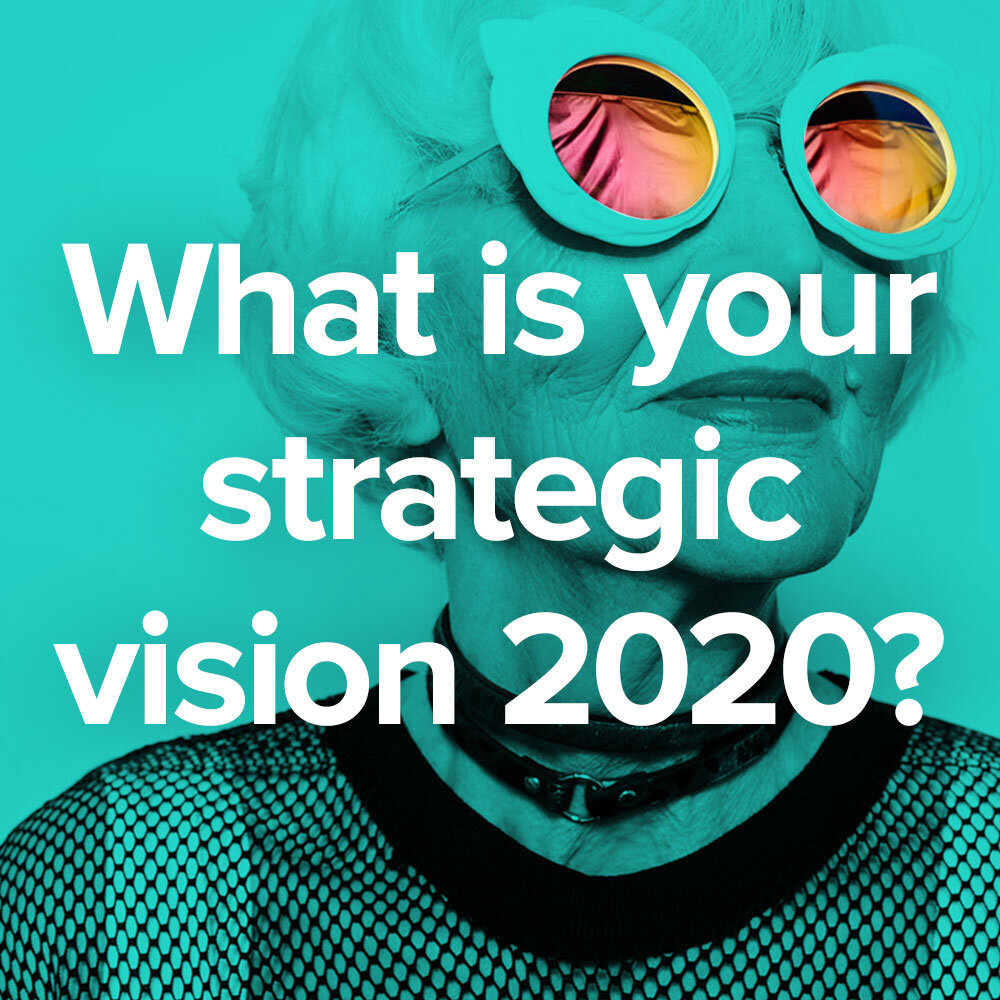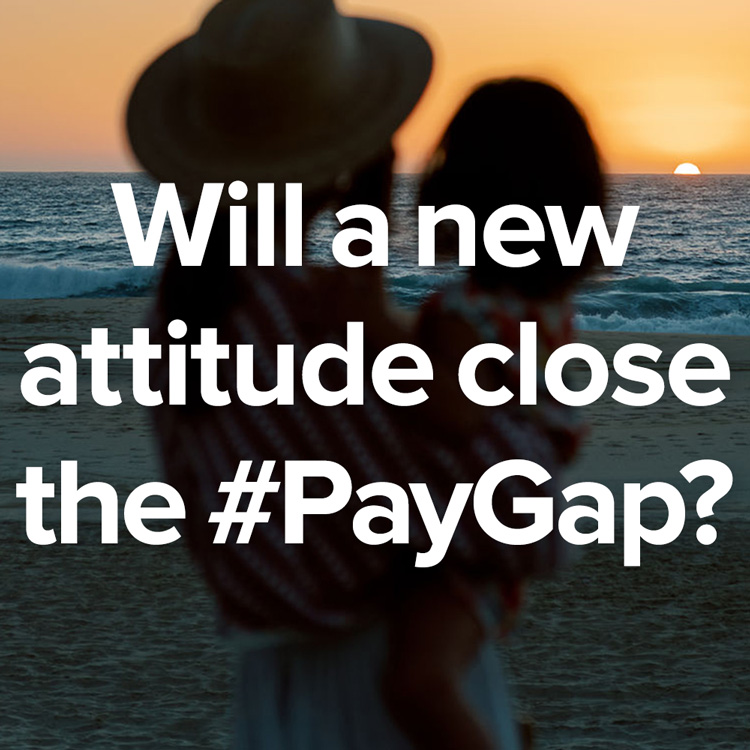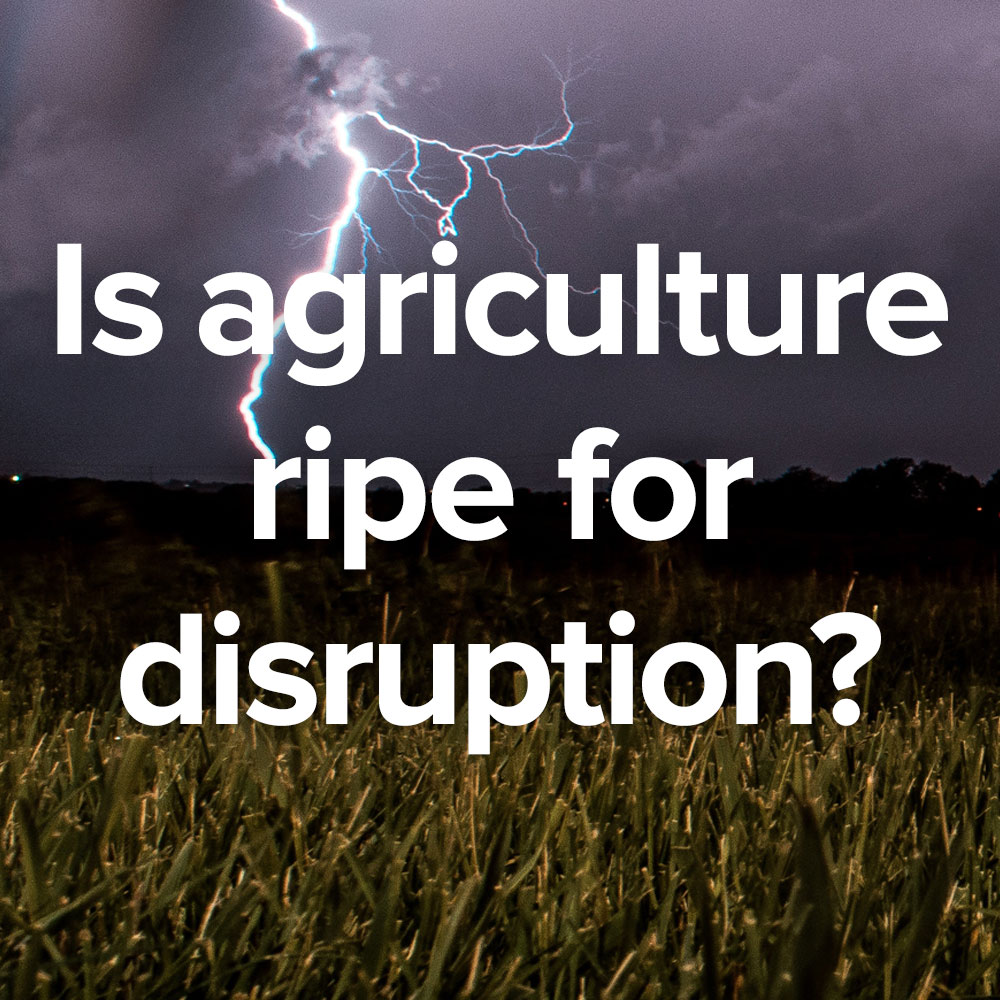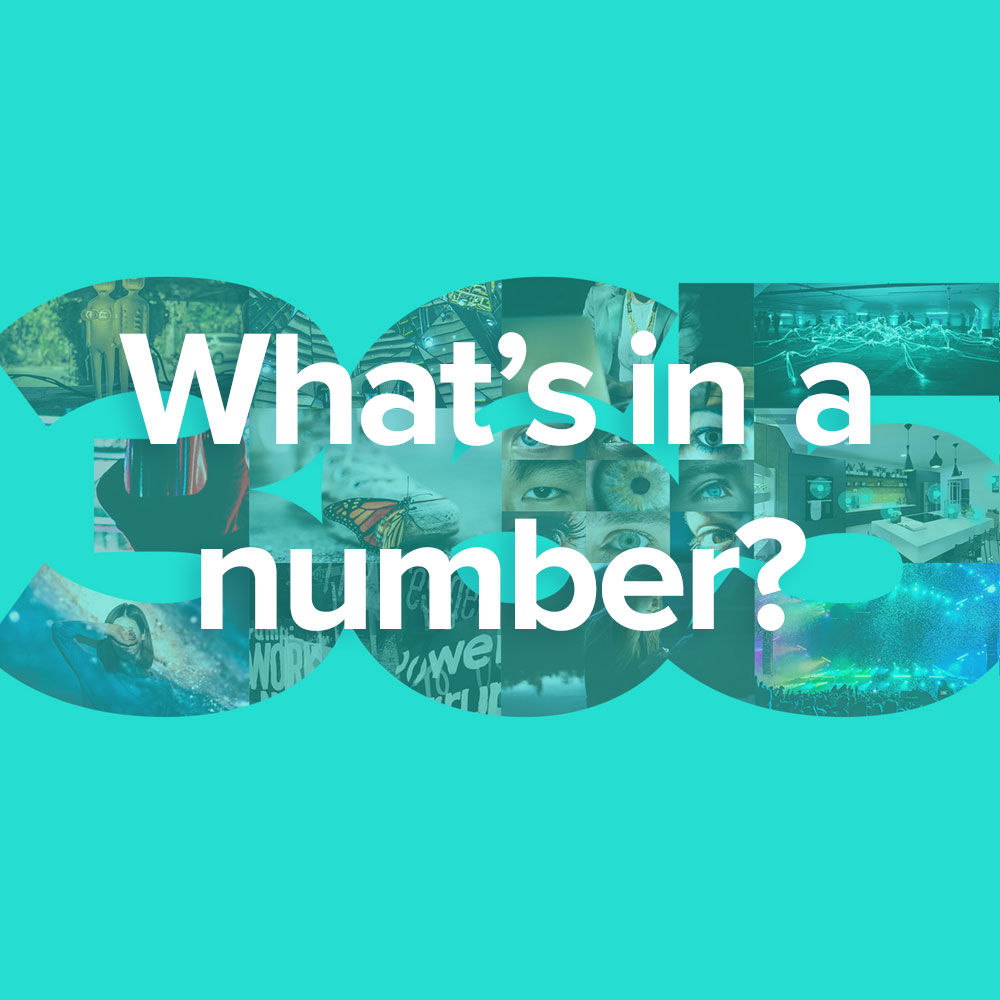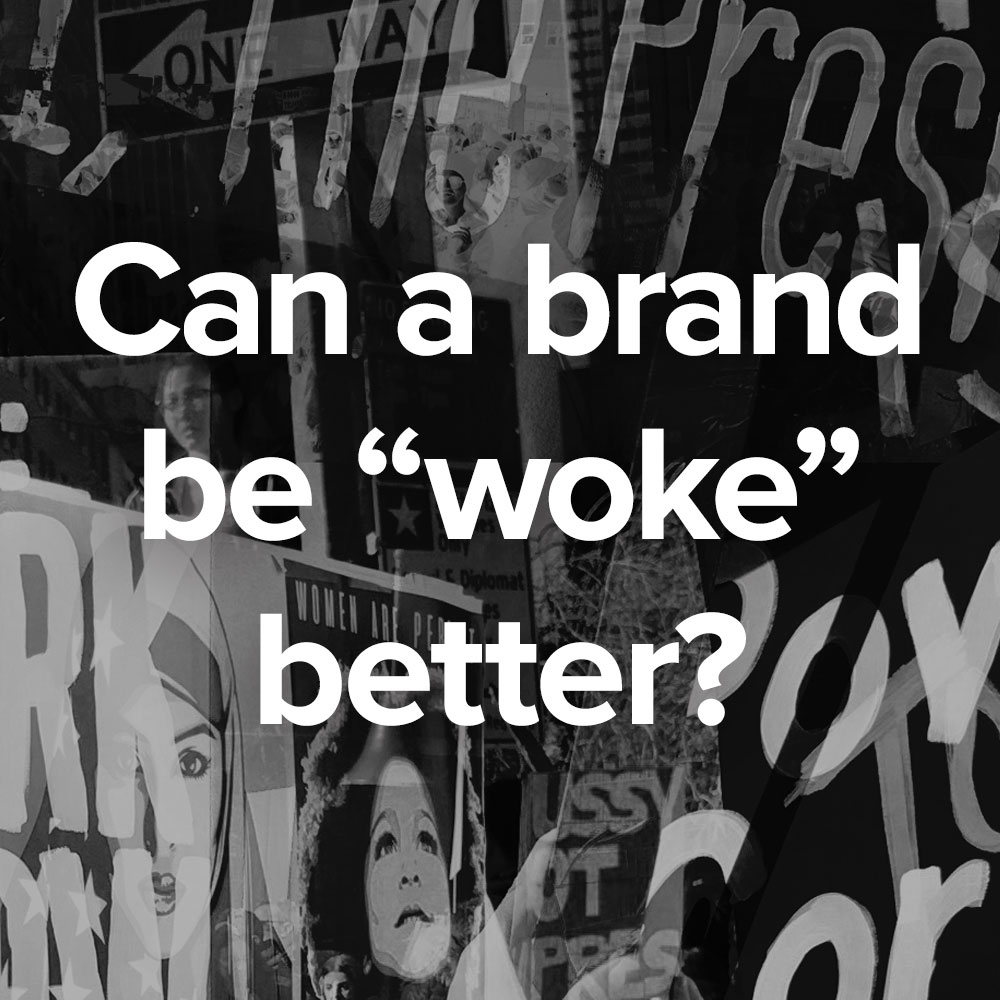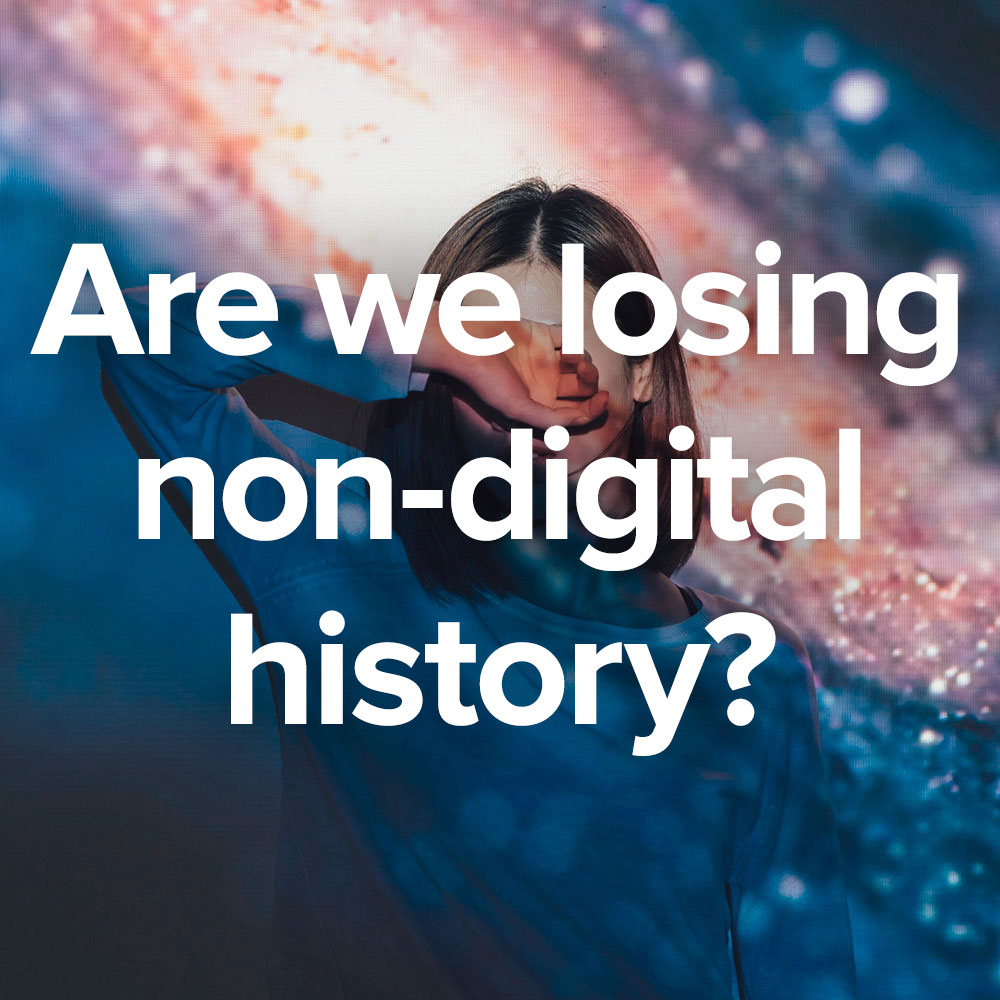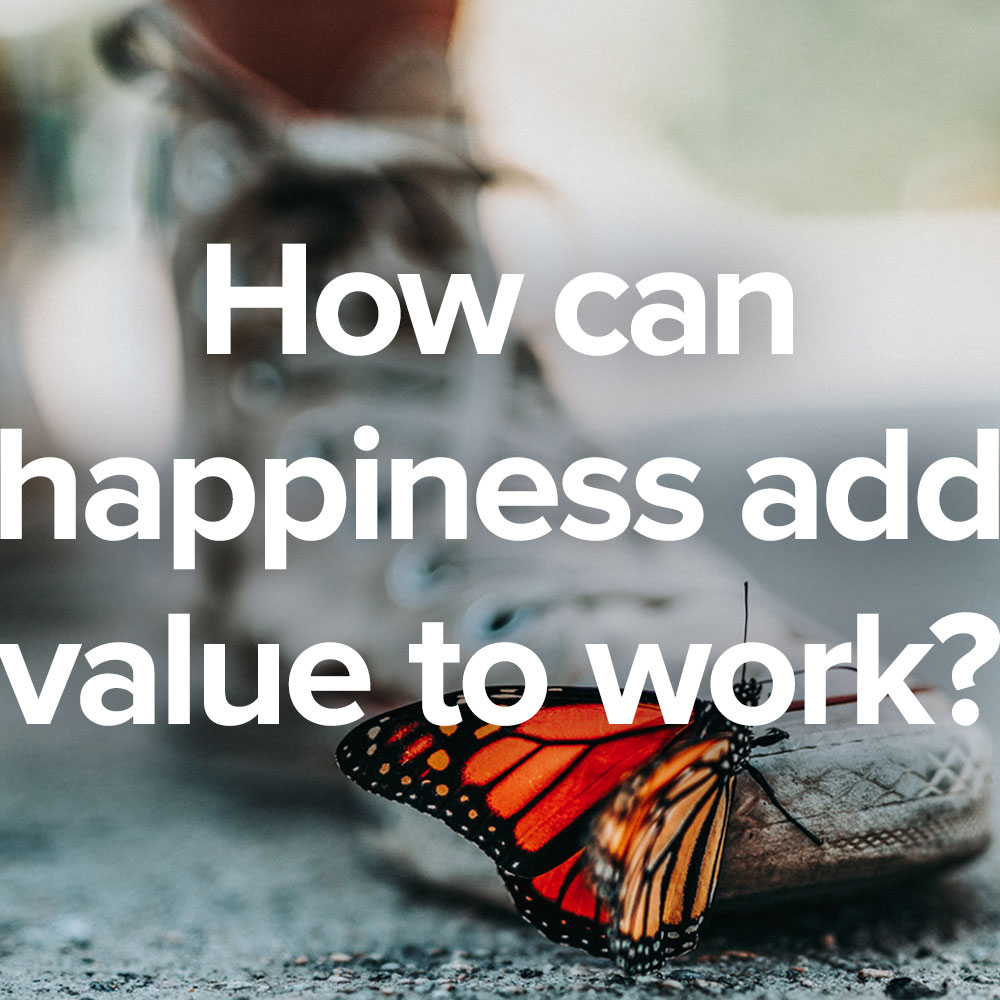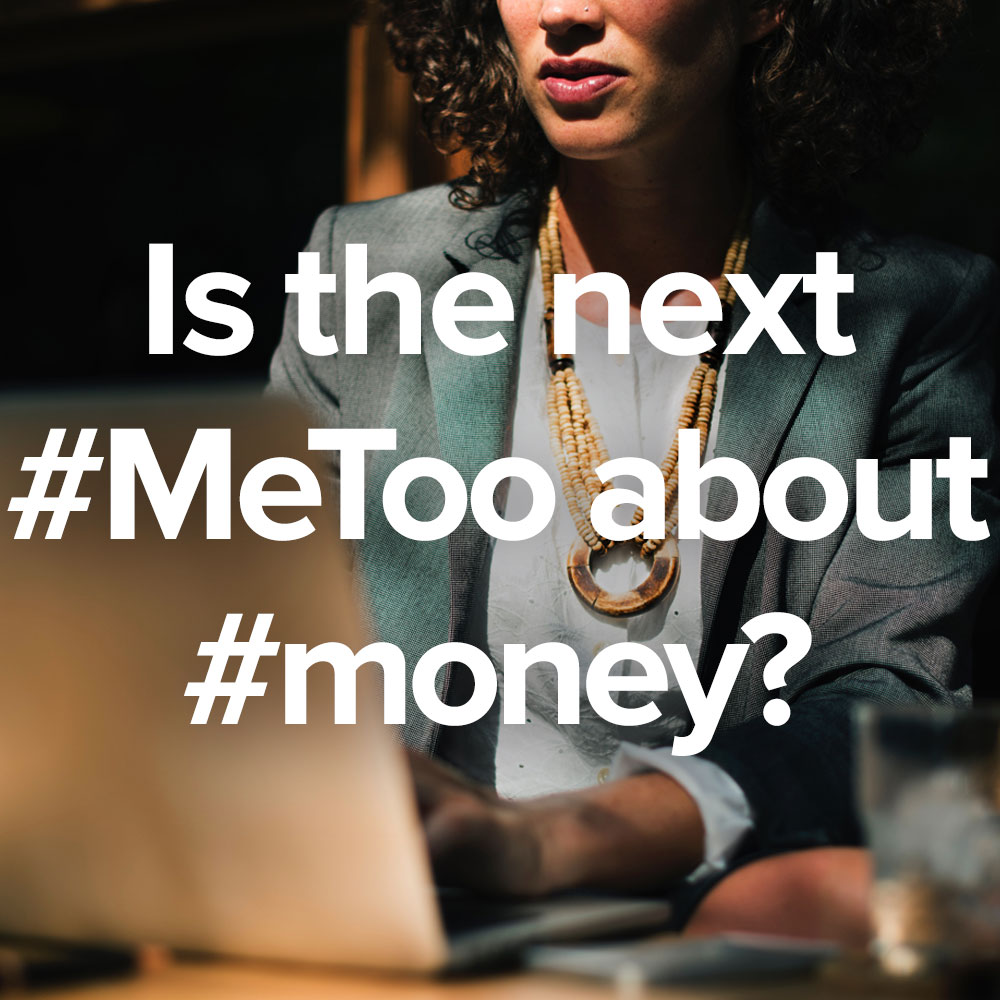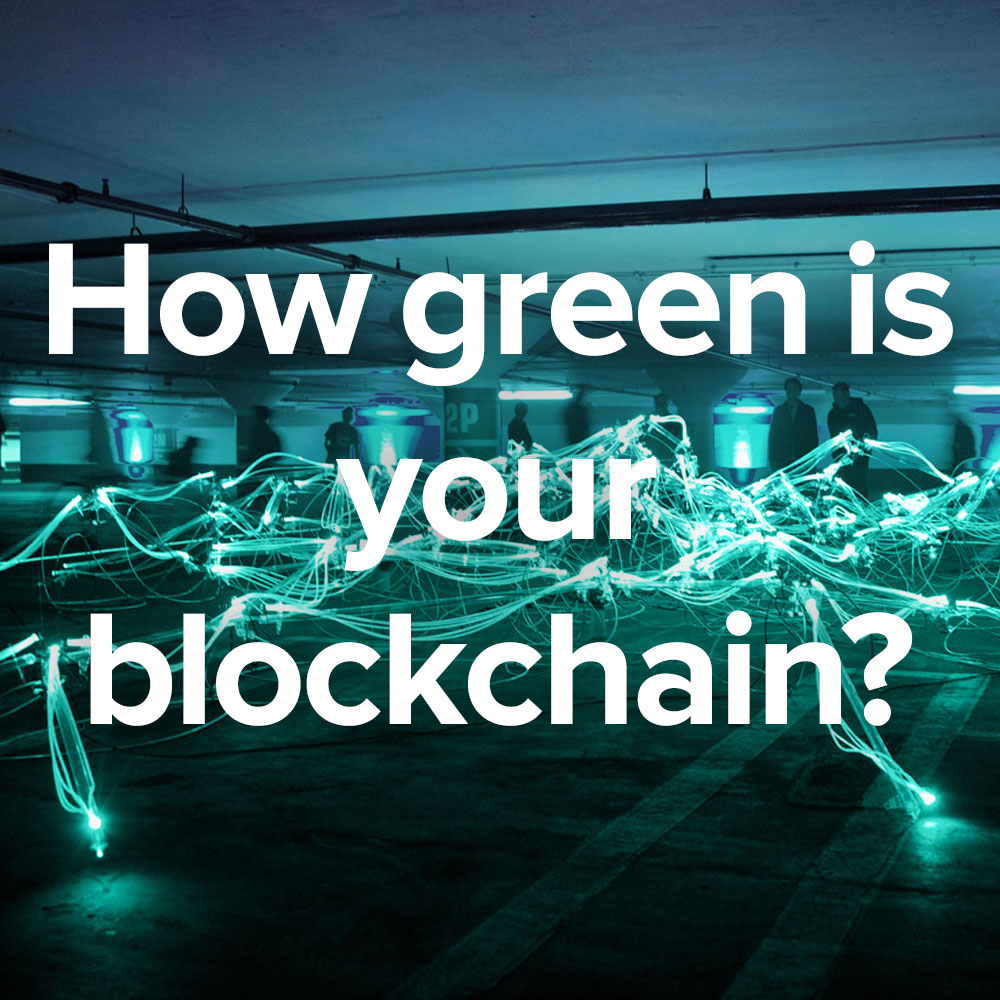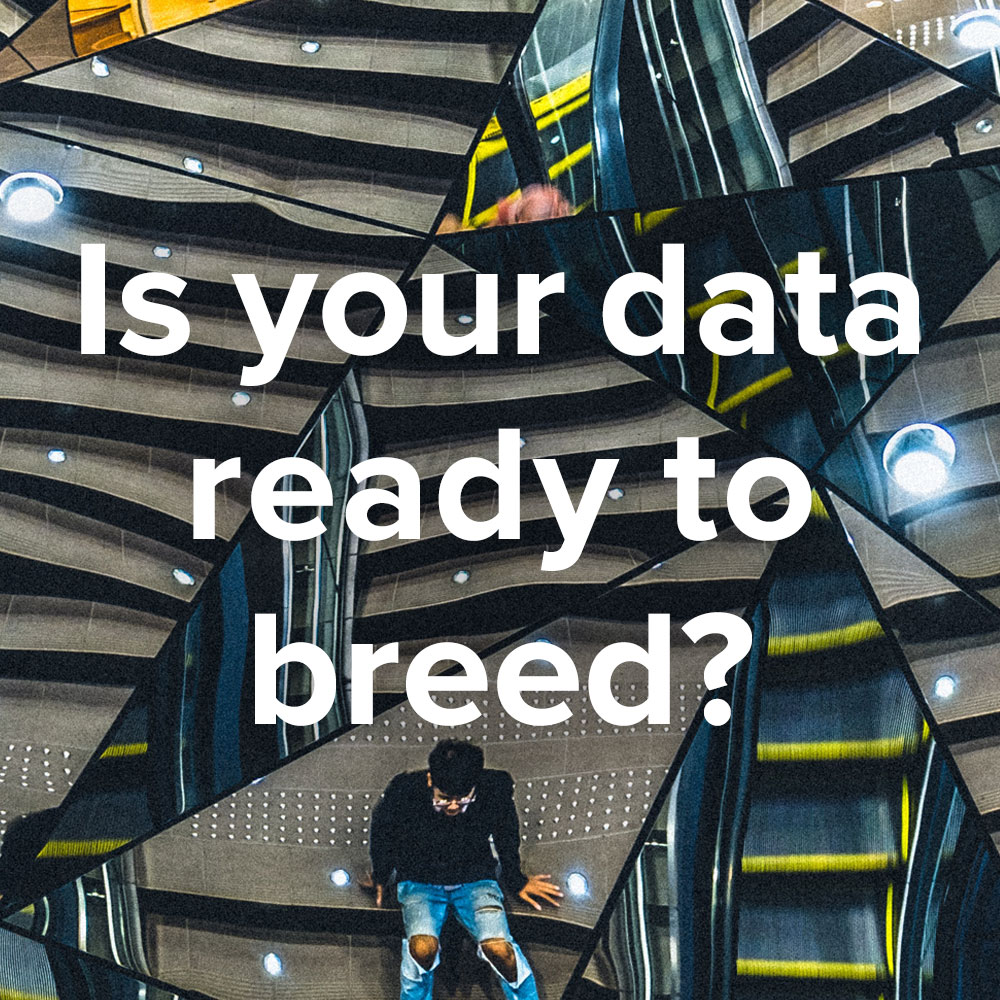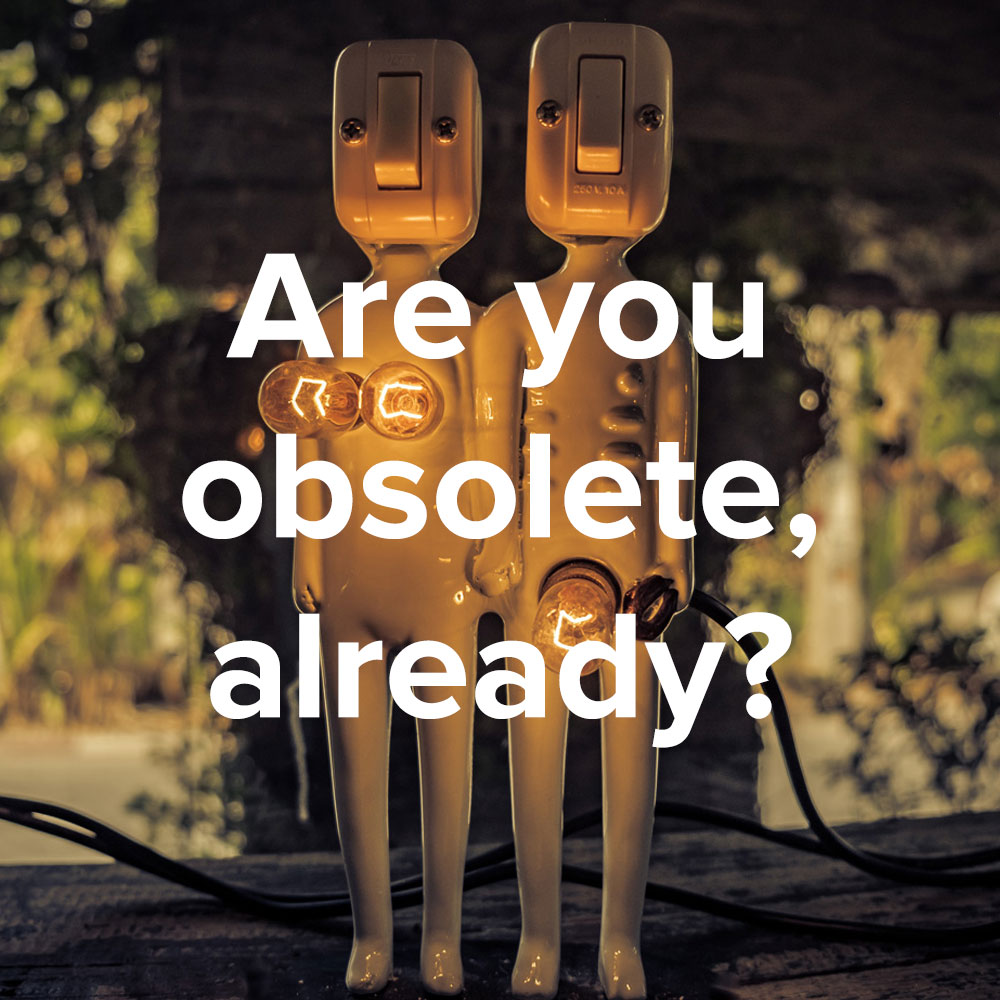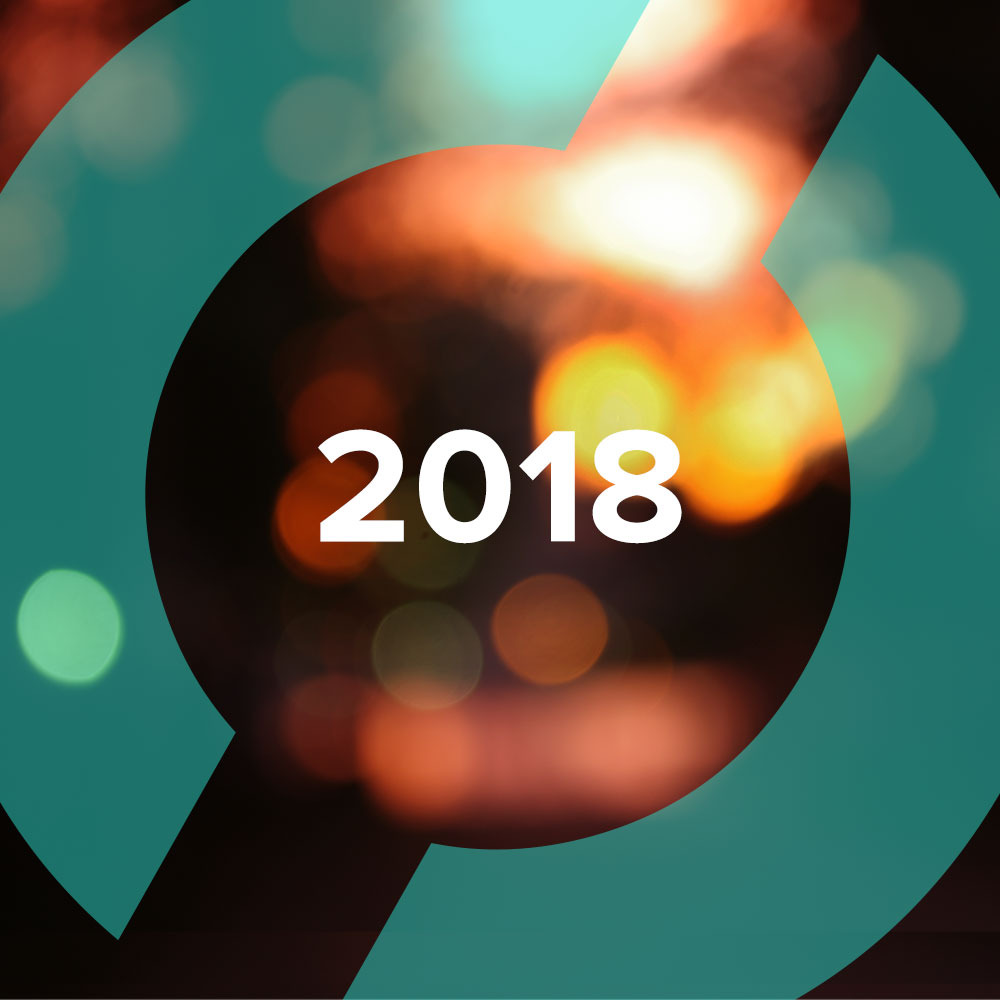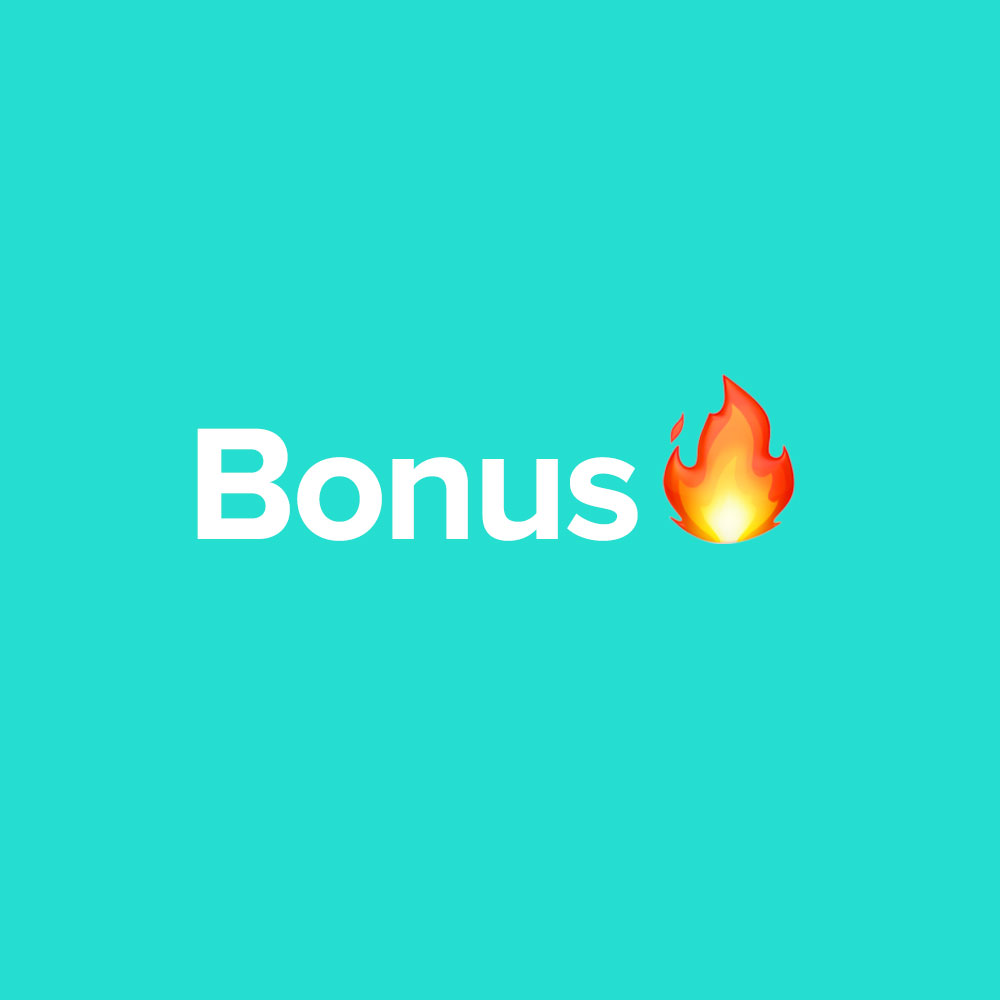“_________”
Tom on the Circular Economy.
That to me is the magic of durable. ‘Durable’ allows us to elevate designs so much that you don’t even have to care about sustainability; you should love it. Now if you also happen to care about the environment, that’s a double benefit. You don’t lose the design benefit. You’d just also be like, ‘Oh wow, I’m also saving the planet in the same go. Isn’t that great?’
— Tom Szaky
CEO at TerraCycle and Founder of Loop
— Regrets? I have a few. Here’s one: In the late 1980s, in Washington, D.C., I voted what I subsequently realized was the wrong way on the so-called Bottle Bill, which aimed to put deposits on bottled drinks for the ultimate purpose of increasing recycling. It was a practical response on my part (doesn’t mean it was right, however). To get your money back, you had to store the bottles someplace. In a 600-square-foot apartment filled with the flotsam and jetsam of two people, that required some innovative thinking, and thinking wasn’t (and sometimes still isn’t) something I was necessarily inclined to do.
Thirty years later, there’s no question that I would do the thinking on this particular issue, but the irony is, now I wouldn’t even have to. Tom Szaky has done that for me. That shouldn’t be a total surprise; when you arrive in the US as a Hungarian refugee, leave Princeton University after a year in change to start a company, you’re pretty bright. In fact, you’re more than that, you’re smart and confident AND you probably have a damn good idea. Szaky’s damn good idea was called TerraCycle, which today is one of the world's leading innovators in the field of waste management. Inc. magazine named Szaky the #1 CEO under the age of 30, back in 2006. Inc. didn’t ask me, but I’d have voted for that.
Tom, you have a great, unusual back story, leaving Princeton at age 19 to found TerraCycle; talk about having the courage of your convictions. But let's not dwell on the past. Tell us what kind of company TerraCycle is now, and where you’re going.
Tom — Absolutely. So, TerraCycle now is 16 years old as an organization. We operate in 21 countries around the world and our mission is to eliminate the idea of waste, and we do that in a number of different ways. We have three divisions.
Our first, the TerraCycle brand, is really known for is collecting and recycling those things that are difficult to recycle. From your dirty diapers to your cigarette butts and hundreds of other packaging forms in between.
Our second division is not about collecting and recycling, but about integrating waste like ocean plastic into products like shampoo bottles. It’s more about making things recycled.
Now, our third division, Loop, was announced 100 days ago at the World Economic Forum in Davos. It’s all about: How do we shift away from what we believe is the root cause of waste, which is using something just once, or “disposability,” and shifting towards a no-waste system, where we use things over and over, or with “durability.” All while trying to maintain the benefits of disposability, which is to make things cheap and convenient. That’s what Loop is all about.
Twenty-one countries? How do you manage around 21 countries? Are there 21 Tom Szakys around the world?
Well, in a way, yes. TerraCycle is made up of about 300 team members. So, there’s 299 other people like me running around, trying to advocate for the work we do. The important thing is that if you think about any one of our divisions, whether it’s TerraCycle collecting and recycling, or integrating waste, or Loop and moving to durables, the underlying way they work is actually incredibly similar, which is: Each type of waste is a unique animal. Each one has to be collected, processed. In TerraCycle, it's more shredding and melting and recovering material, while in Loop, it's more about cleaning. And then working with major brands and major retailers to enable these things to exist.
“We need to eliminate the idea of waste...And that’s why recycling, and I say this as a recycling company, is only a temporary solution, not a perfect solution.”
Even though you are obviously an environmentally conscious company, you’re still going to have to deal with regulators. You’re still going to have to deal with maybe some pushback, right?
I have to say that as a ‘purposeful organization,’ we’re very lucky that people generally love us and want to help us exist versus make it challenging for us to exist. It’s usually we’re being advocated for, versus being advocated against. Usually from a legal framework, most of the laws of the land are structured to actually help companies like us to exist, versus hurt. So, it’s usually net-beneficial. When I’m asked is it good if a new law passes, a new regulation around waste, I’m always like “Absolutely!” Cause it's helping us take a step forward.
A lot of it, too, is in partnership with the major brands and major retailers that we partner with. They take on a lot of the work as well, because it’s all around their products, and by partnering with them, a lot of the challenges go away.
I’ll circle back to that about the partnerships. But first ... Waste: Are you basically trying to eliminate the word? The concept from our consciousness? You know what I’m saying?
Yeah, I do, I totally hear you, and I think every company has to have a big hairy goal. This is a ridiculously big hairy goal, but the direct answer is ‘yes.’ I mean, if you asked a tree what is waste, I don’t think a tree could define it. Cause it doesn’t exist in nature, or any animal if you asked them, what is waste, they couldn’t define it because in nature there is no such thing, right? My useless outputs such as the carbon I exhale are super-useful to other organisms. So, the useless outputs to organism A are typically useful outputs to some other organism and such. There are no outputs that are useless in both cases. And that is the modern idea of waste: outputs that are useless to the creator but also useless to any other organism that may want to eat it. In fact, most cases that animals think that waste is food, they eat it to their detriment.
“If you asked a tree what is waste, I don’t think a tree could define it. Cause in nature there is no such thing.”
We need to eliminate the idea of waste. This is why recycling is an important temporary solution, but strangely and academically, if you looked up the word ‘recycling’ in a dictionary, it would be bound to the word ‘waste’. In other words, the word ‘waste’ has to appear in the definition of the word ‘recycling.’ And that’s why recycling, and I say this as a recycling company, is only a temporary solution, not a perfect solution.
Can you show me, I mean, not just tell me, the difference between TerraCycle and Loop?
Oh, sure, let me pick a product that exists in both businesses to compare and contrast. I actually even have a prop here. Bear with me. Ok, let’s do something like an ice cream container, because I happen to be having one in my hand. So today, if you bought an ice cream container, it would probably be paperboard, right? If you bought like a Häagen Dazs or let’s say a Ben & Jerry’s or something. Now that paperboard container, when you're done with it, is not recyclable and will end up in a landfill or an incinerator. That’s today.
With our first division, we would, and we do this with Ben & Jerry’s for example in Japan, give you an opportunity to be able to collect that used paperboard ice cream container, and we would take it. We would shred it. We would separate the plastic from the paper and recycle both into new plastic and paper products. That is recycling, right?
“This Häagen Dazs container is like the best ice cream container in the world. It’s beautiful. It has new function. And, the amount of work to have this go-around again is incredibly little compared to the amount of work to recycle something, let alone to dispose of it.”
Now in Loop, we change the container to stainless steel. Incredibly beautiful. A fantastic container. And this, when we pick it up from you, dirty with ice cream residue in it, gets cleaned and refilled. That’s the difference between Loop and TerraCycle and how they work. The benefit is with Loop, you get a way better container. This is like the best ice cream container in the world. There’s nothing better than this. It’s beautiful. It has new function. And also, the amount of work to have this go-around again is incredibly little compared to the amount of work to recycle something, let alone to dispose of it.
Okay, I’m really impressed about that ice cream thing.
I’ll show you another one for fun. Here, for example, is the newly designed Loop toothbrush, made from metal. But first, imagine an old plastic toothbrush. Okay?
Sure.
In a plastic toothbrush today, you can’t recycle at home, so you throw it out. That’s today, there’s no choice. We have, at TerraCycle, created a national program with Colgate and with other brands as well, but with Colgate in the U.S. that nationally allows you to recycle your toothbrushes by sending them to us and we shred them, melt them, and maybe make them into a playground. That’s TerraCycle.
In Loop, when this newly designed toothbrush comes back, now this is a bit more complex. So, the new toothbrush has parts of it that are reasonable to reuse. Like, check this out. The bottom of the new toothbrush, this part, that’s reasonable to reuse. So, this is cleaned and goes to the next consumer. While the head, no matter how well I clean the head, you would never be comfortable using someone’s old head. So, this goes to recycling, and all we do is put a new head on and out it goes to the next consumer. So here, the bottom is what goes to re-use. And this is probably the most beautiful manual toothbrush ever invented. I mean it's beautiful. Metal, feels amazing, and that’s what durability does. It doesn’t just solve for the environment. It actually makes a way, way, way better product.
“And this Oral-B is probably the most beautiful manual toothbrush ever invented. I mean it’s beautiful. Metal, feels amazing, and that’s what durability does. It doesn’t just solve for the environment. It actually makes a way, way, way better product.”
That’s great, because what you’re saying is that it doesn’t have to be all or nothing.
Yup.
How do you interact with the customer, incentivizing them to participate? How do I get the mailer to send back to you? Who pays for that? Do I have to go to the actual post office, cause it's bulky or whatever?
Okay so, I’m going to always compare and contrast TerraCycle and Loop because one is recycling, and one is reuse. Let’s first start with TerraCycle, which is recycling. Take a shampoo bottle. Okay? Today, most cosmetic packaging is not recyclable. So, if you wanted to take today’s disposable, not recyclable cosmetic packaging, you can go on TerraCycle.com, type in “cosmetic packaging.” Type in your location or you could look for an already existing public location. Which is say, someone who has set up a program. You know, put out a cardboard box and said “Please collect your cosmetics in here” or if you don’t have one near you, you could create your own by joining and putting out your own cardboard box, and say your business or your office, your school or your community center, your church. And then you could choose to register that to be public so the next person searching can find you.
Then whenever that box is full of not just yours but hundreds of cosmetic packages, you download a free shipping label from our shipping website. Send it in and then in some cases, even get an incentive for every piece of waste you send to us; say two cents per piece of waste to any school or charity of your choice. We’ve given away about $40 million in that approach so far in our history. And then we take the waste and then we recycle it by shredding, melting it into new objects. That’s on TerraCycle, and there the direct answer to your question is: in most cases, the brand; in some cases, the retailer; and in some cases, the city pays so that you have a free program. And if that isn’t the case, we offer paid versions where you as an individual could buy it if we haven’t been successful getting a sponsor to fund it.
And Loop?
Loop is embedded into retailers. Carrefour in France, Tesco in the U.K., for example. We’re going to be announcing the U.S. retailer in May; it’s a big one. All leading retailers in their respective countries. So that’s like that cool toothbrush, the cool ice cream container, right? Those would be available either through their online e-commerce portals or through their stores.
So, imagine like a durable section of their e-commerce platform or a durable section of the store. You go in, and let’s just say you bought the Häagen Dazs ice cream and the Oral-B toothbrush, the ones I showed you just now. On each one, you pay for the content, about the same as you normally would. And then you put a deposit on the durable component or the durable package equal to the value of that durable package. So, the Häagen Dazs, let’s say it’s $6 to buy a pint. Then in Loop, it’s going to be $6 plus maybe a few dollars’ deposit on the package. In the toothbrush, the consumable is the brush. Let’s say a brush is usually a few bucks so the brush head is a few bucks, but the handle is maybe a little more deposit because it's so beautiful and luxurious etcetera.
If you buy it in the store, you just leave the store with it. If you buy online, it’s delivered to you in a durable shipping container. Now here’s the fun part. When you’re done with it, and your toothbrush is worn out, your Häagen Dazs is empty, there’s no cleaning, dirty, like garbage, you put it into the durable shipping container you received if it’s e-commerce, and if you bought it in the store, you put it into effectively a durable garbage bag that you can get in the store. Like literally like garbage: dirty, no mixing. You then take it, if you bought it in the store, you take that garbage bag and you drop it off in a Loop bin at the store, and then a day later, we’ll check it in and give you all your deposits back in full, and if you bought it online, you can give it to the e-com driver on your next delivery, and he’ll take it or she’ll take it away, and then it comes to us, and then when we check it in and give you all your deposits back.
And then you just go buy it again. Whether online or in the store.
Is it going to be an automatic refill?
In the online version, you can set your product to be “refill me when returned” or “don't refill me when returned.” Only in the online version. Which means that if you send in an empty Häagen Dazs and you set it as “refill me when returned,” the empty container triggers an order of the next one.
That’s awesome. Now let me ask you, what percentage of my incentive is my sense of social responsibility, which I guess you could argue that would be the two cents to charity, but I’m talking about more like the ‘I just want to do good for you’ part. And the whole concept of not throwing things in the garbage, how much of the incentive is financial in any way or could it be?
With TerraCycle, the recycling, that $40 million to be given away has never gone into an individual’s pocket at all. It always goes to a school or charity of the collector's choice. And so, the motivation in TerraCycle is entirely environmental and social. Environmental for not having waste and social for helping benefit people with those donations. There is no economic benefit to you. In fact, it’s a little bit more hassle.
Loop, which is our re-use section, let me ask you, if you were as anti-environment as a human being can be, wouldn’t you still prefer your Häagen Dazs in that new package rather than in the paperboard one?
Totally.
That to me is the magic of durable. ‘Durable’ allows us to elevate designs so much that you don’t even have to care about sustainability; you should love it. Now if you also happen to care about the environment, that’s a double benefit. You don’t lose the design benefit. You’d just also be like, “Oh wow, I’m also saving the planet in the same go. Isn’t that great?”
Talking globally, is it hard to get people to do the right thing, with the environment?
The branded TerraCycle programs are entirely built on “please do the right thing. Please be a good human being.” That’s what they’re focused on. And that’s not easy. I mean, we’ve grown, we’ve been very successful as an organization. But, TerraCycle’s revenue this year will probably be like $37 million or something. That’s not bad, but that’s not monstrous, you know? I’m proud of that, but it’s not billions as many companies can be, right?
Loop on the other hand, because I can play into one’s selfish motivations of ‘just better, more convenient,’ all that, I think could be billions very quickly, and we’re seeing that response already. The level of interest of consumers and so on is monumentally greater than we have ever experienced in TerraCycle’s core business. Now Loop couldn’t have existed without TerraCycle existing, but I feel like there’s way more opportunity for growth on Loop than there is on TerraCycle.
Let’s shift a little bit from the environment to branding. To marketing. Do you find it easy to find audiences with consumer-goods companies?
Today, I do. Today is incredibly easy but remember this is year 16 of putting in my dues, almost two decades of doing what I would say are quite innovative things and building on a lot of success. That also means a lot of struggle, a lot of failure, but we’ve shown a lot of success, and we’ve shown a tremendous amount of innovation. So, at this point, I can get to about any consumer-product company quite quickly, but that wasn’t the case if you asked me five or 10 years ago; it would have been much harder. I think that’s also compounded because now people are awoke to the idea of not TerraCycle per se, but to the issue of waste. Three years ago, people didn’t understand the issue of ocean plastic, but now they do.
“This is year 16 of putting in my dues, doing what I would say are quite innovative things and building on a lot of success. That also means a lot of struggle, a lot of failure. At this point, I can get to any consumer-product company quite quickly, but that wasn’t the case five or 10 years ago.”
“I think that’s also compounded because now people are awoke to the issue of waste. Three years ago, people didn’t understand the issue of ocean plastic, but today they do.”
And once you get inside the door it’s a relatively easy sell?
Well, this is interesting. Two answers. With TerraCycle, we don’t go into a brand and say, “You should take a responsibility over your waste because it’s causing a problem.” Instead, the way we frame TerraCycle when we go into a brand is, we say, “By creating a recycling platform on your toothbrushes, people won’t necessarily buy more toothbrushes, because consumers buy what they need. They’ll just happen to buy your brand instead of the other brand.” We frame it as how it’s going to make them win at what they deeply care about, which is market share or profitability or increase of net sells. That’s how we frame it, right?
In Loop, the way we frame it is to say, “You have a waste problem and you have an innovation problem. Your innovation problem is that packaging and products are getting cheaper every day, which means what can you do to innovate and make your consumer delighted?” After all, for many products, innovation is limited. Imagine if you’re a toothpaste tube, what could you really do other than change the artwork if you had five cents a package to redesign with? You can’t really innovate much more with five cents other than changing the artwork. That’s pretty limited, but with Loop, you can redo everything. You can change the entire ecosystem of what is it to dispense toothpaste. And completely change the entire equation. And that allows for breakthrough innovation, and, oh, by the way, it completely solves your waste problem. But in that order.
So, you guys are a packaging company maybe as much as you are a recycling company, as you are anything else?
With Loop, we don’t design packaging nor make packaging, right? Instead what we do is, we help you create systems around the packaging that make the packaging better.
It occurs to me, if you guys are really successful, do you put yourself out of business?
Absolutely. I look forward to it.
In your lifetime?
Look, the sooner the better. Who knows? I mean, the waste problem is so gargantuan. I think that’s a bold answer to say, ‘in my lifetime,’ but that outcome would be quite fine.
Köszönöm Tom, for taking 45-minutes out of your very hectic schedule!


